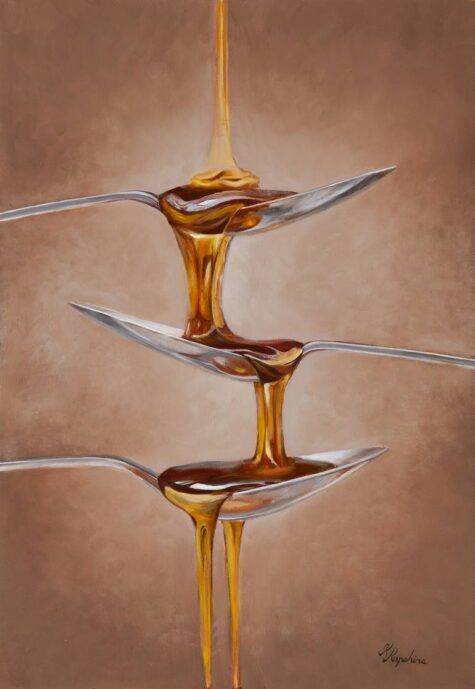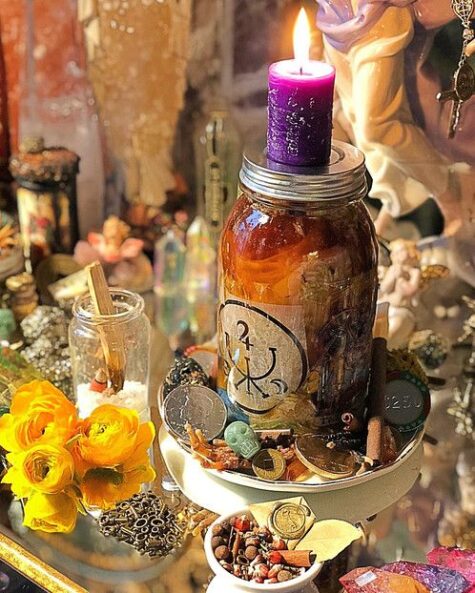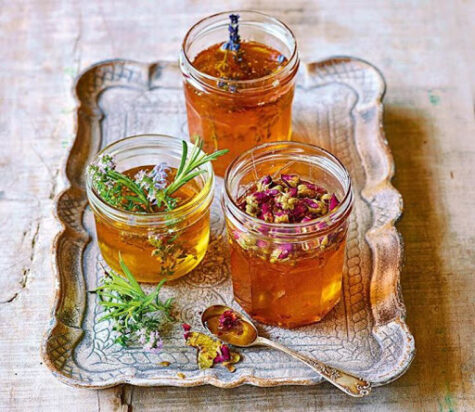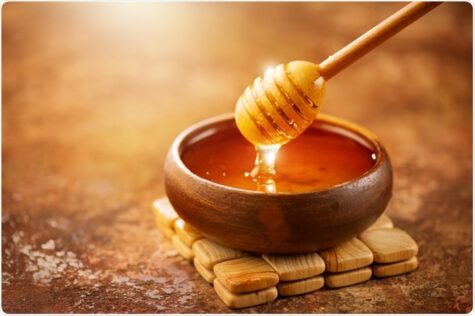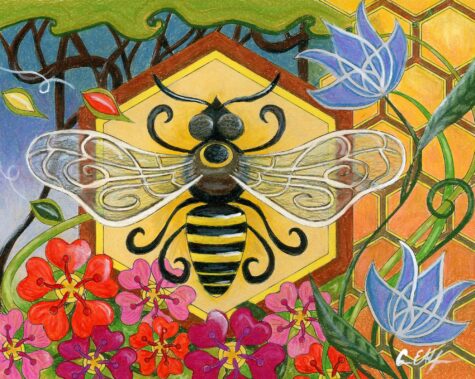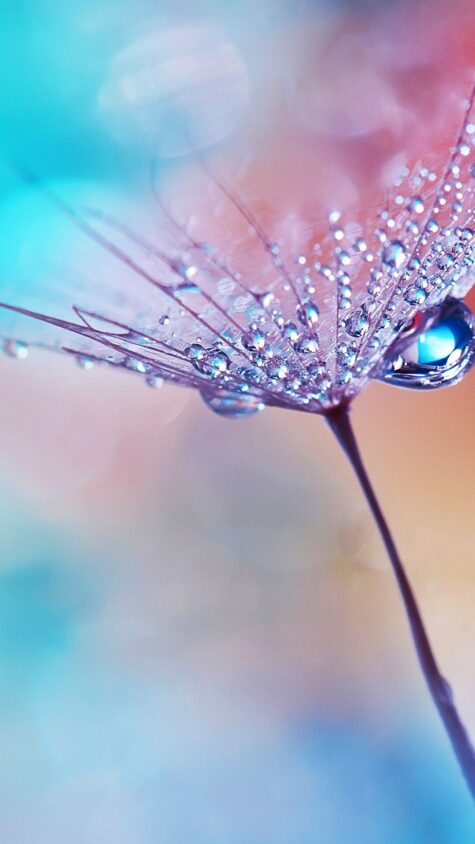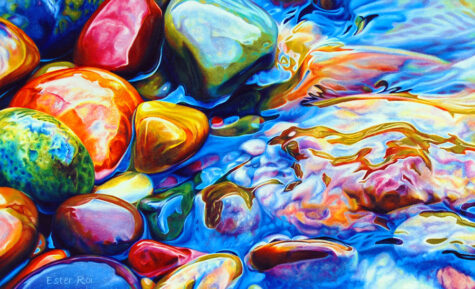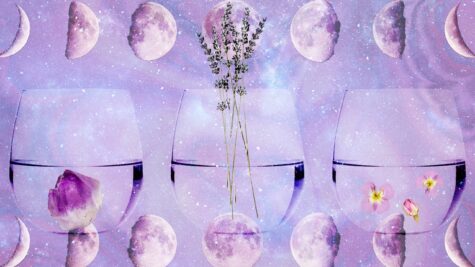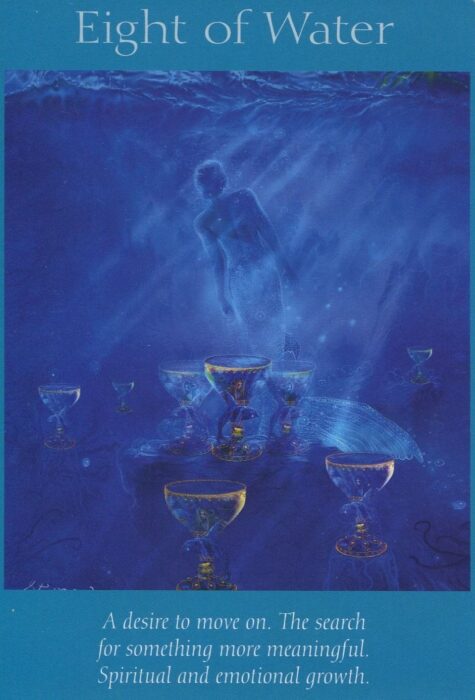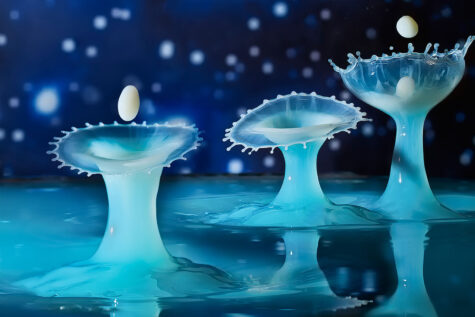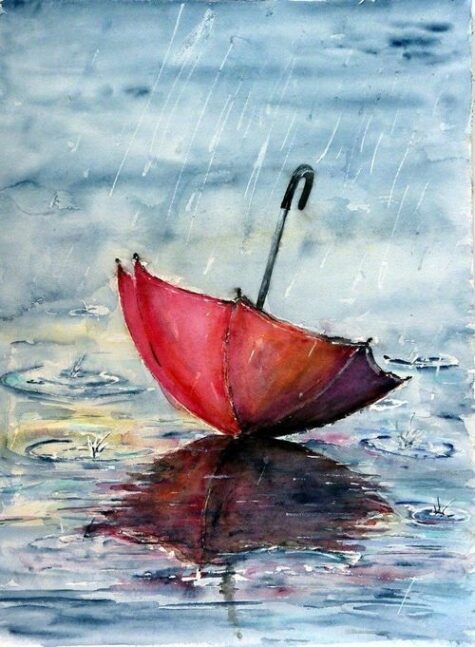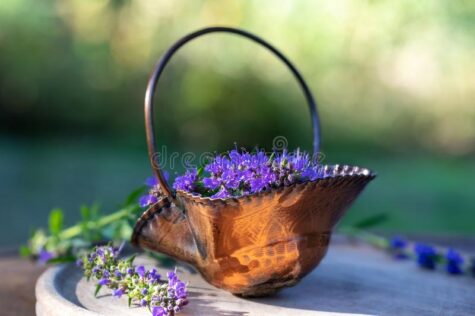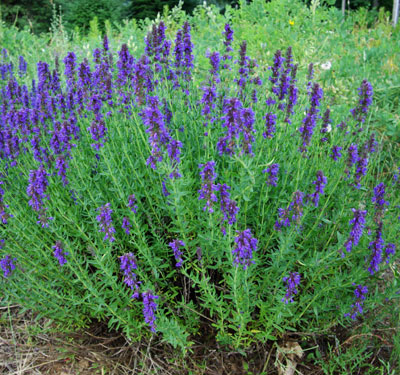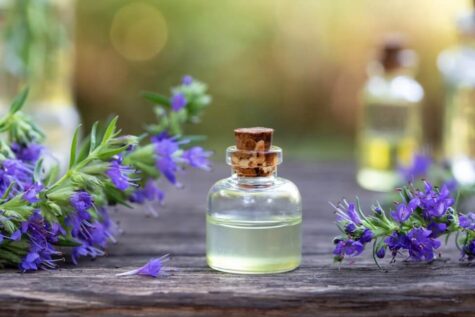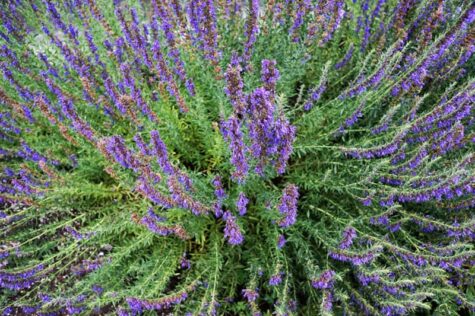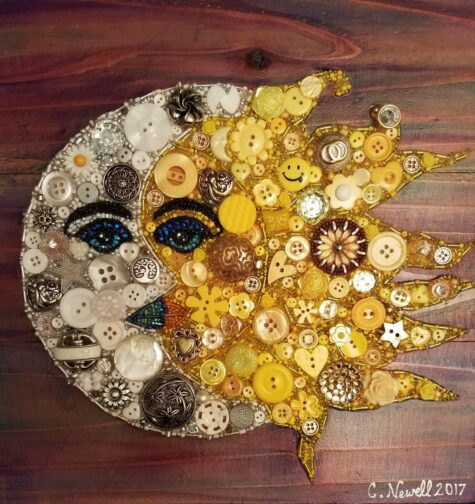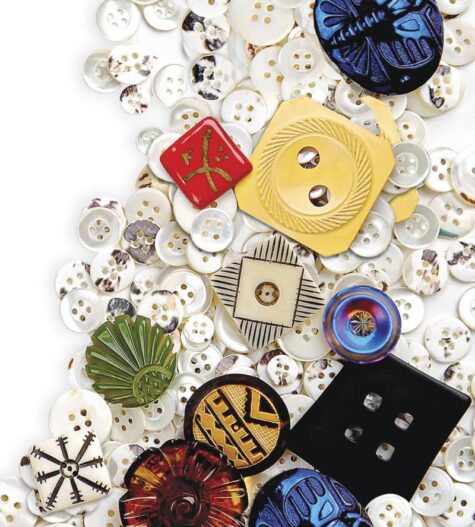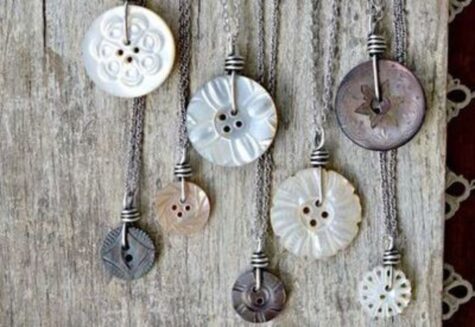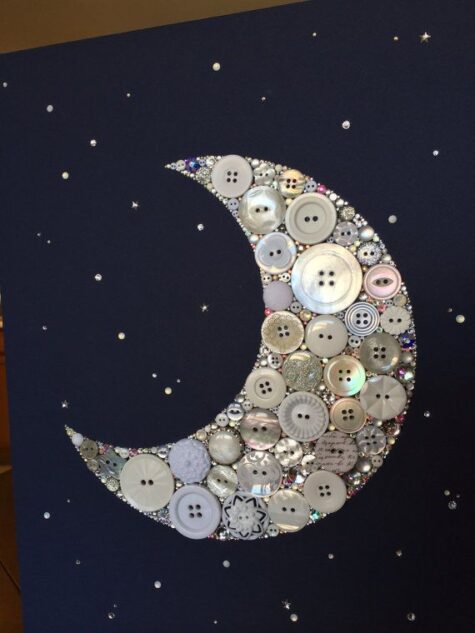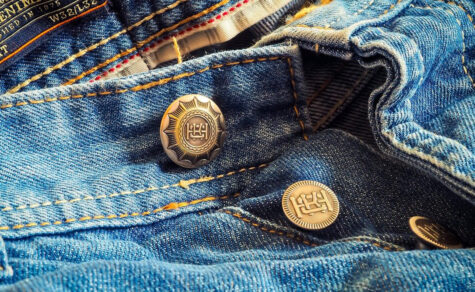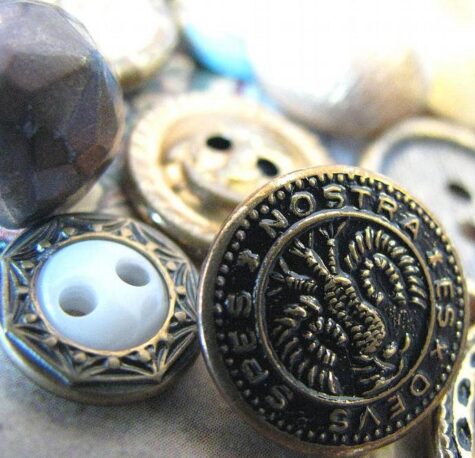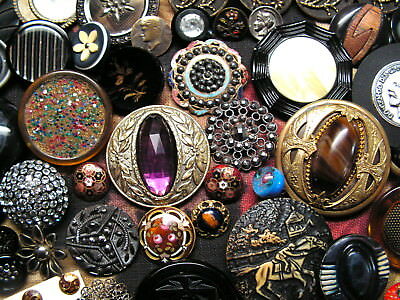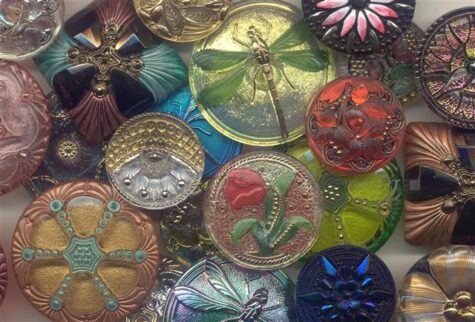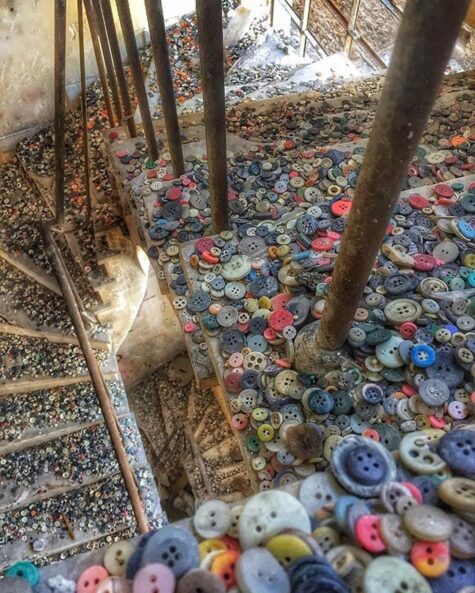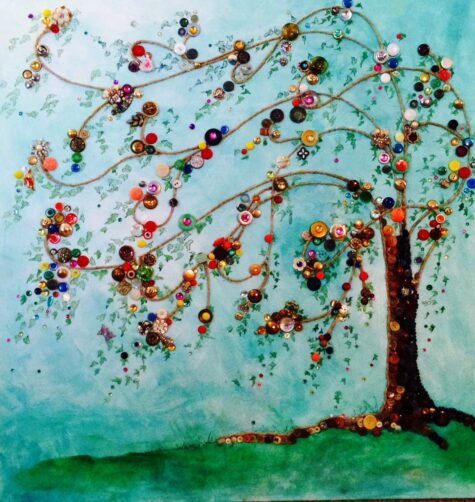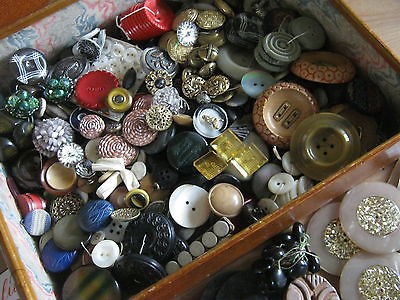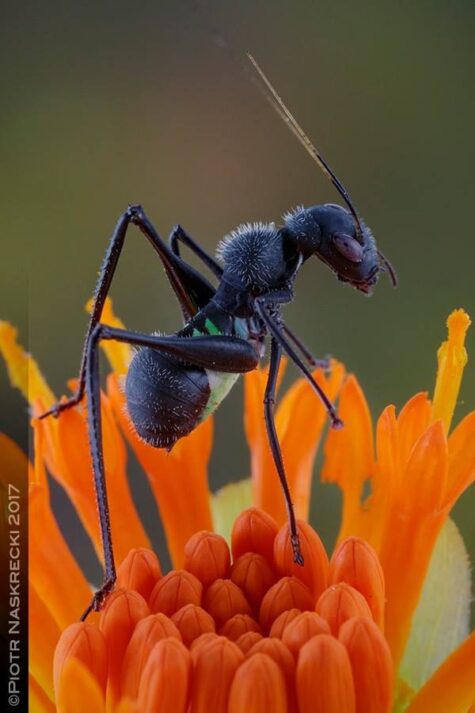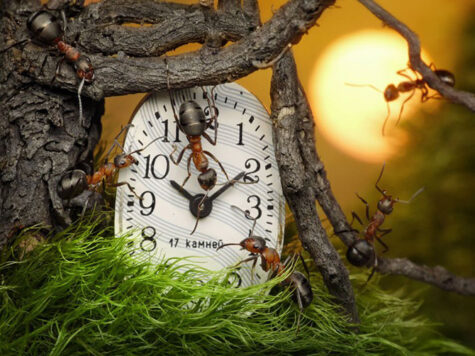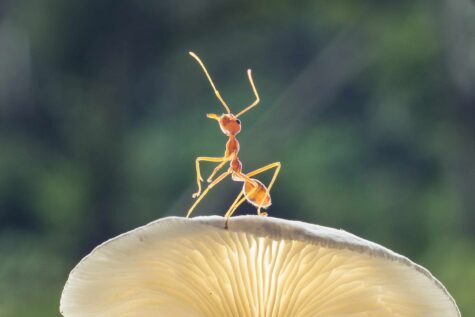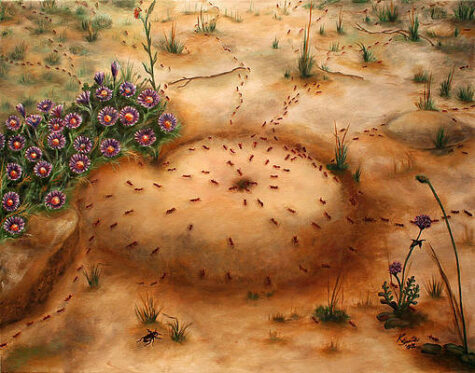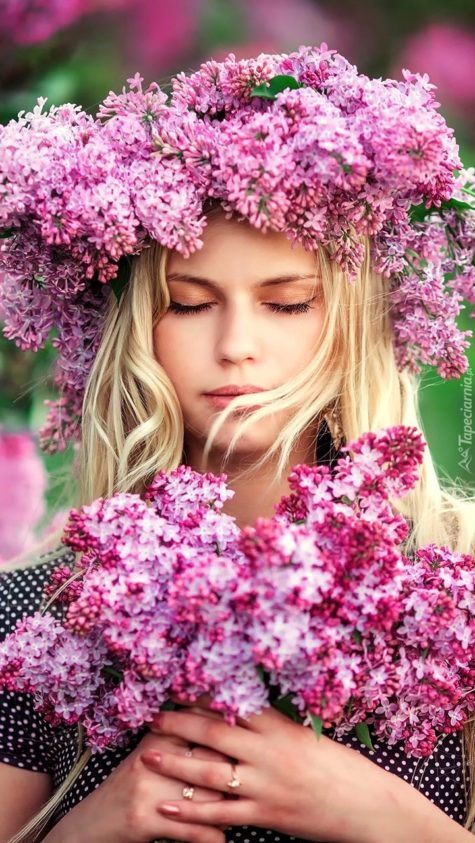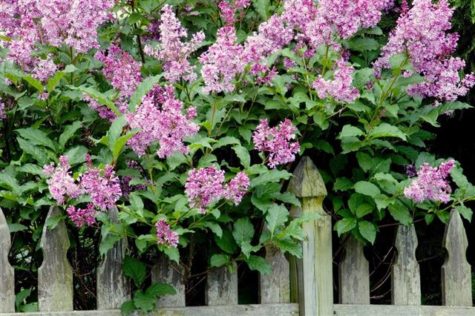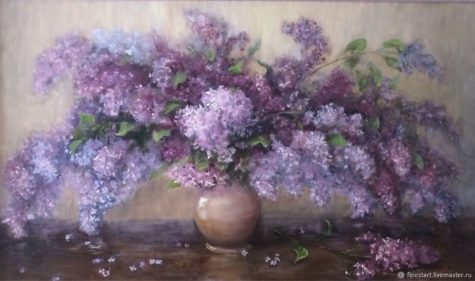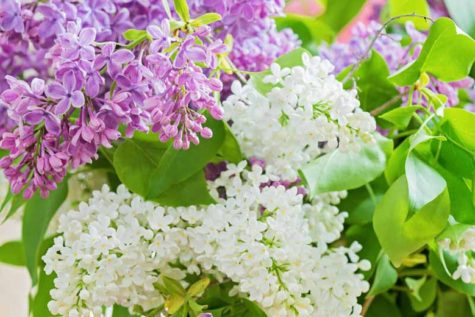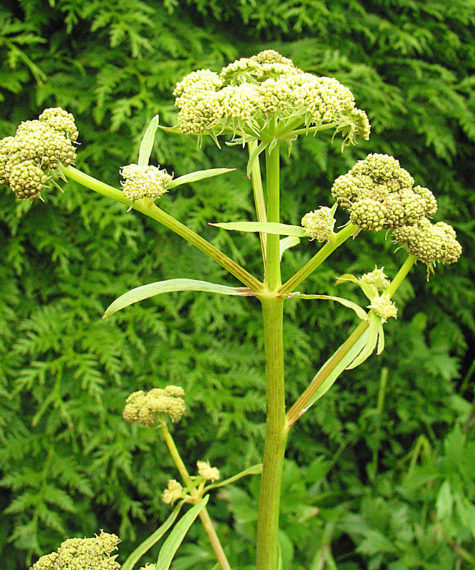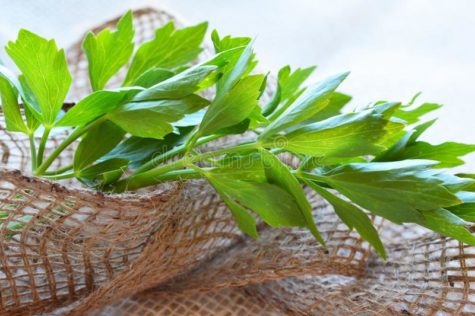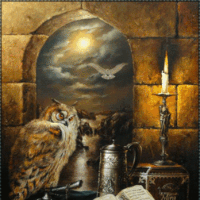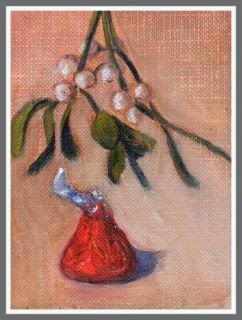- Rulers: Oshun, Ra, Vishnu, Krishna, Aphrodite
- Element: Water, Earth
- Gender: Feminine
- Number: Six
- Sacred Geometry: Hexagon
- Type: Food
- Magickal Form: Any type
- Qualities: Sweetening, Binding, Happiness, Healing, Love, Prosperity, Passion, Spirituality, Faerie
Honey – the glorious nectar of the bees is one of the oldest foods known to man…and woman. Honey’s history is extensive. A 8,000 year-old cave painting in Valencia, Spain depicts humans hunting for honey. Honeybees were sacred to numerous ancient civilizations including ancient Greece and Egypt. Our ancient ancestors knew that honey isn’t JUST good to eat, it also has multiple medicinal benefits.
The oldest honey ever found comes from an Egyptian pyramid – it’s three thousand years old and still perfectly edible! Microbes don’t grow on honey, moreover preservation lasts for thousands of years!
The Egyptians held the honeybee in high regard and used honey in their mummification process. Therefore honey was a sacred substance and sacred to any gods and goddesses of the underworld and the dead: i.e. Anubis and Osiris. In Ancient Greece, the high priestess of Aphrodite was “Melissa” which translates to “bee”. She tended to the sacred beehives at Aphrodite’s temple on Mount Eryx.
Honey has a number of magickal proprieties, uses and distinct energies. the energies vary depending on which strain of honey you are working with. but overall I would describe them as positive, cleansing, gentle, soothing and warming. its great for spells, offerings and brews.
Honey can be added to any spell work or any culinary recipe to sweeten someone’s mood or disposition. Honey works well for happiness, love, prosperity and healing, it can also add a bit of zing to your love life too.
- Honey makes an acceptable offering for deities.
- It can be kept on your altar (I keep some on my altar to remind me that amongst the seemingly overwhelming bitterness of everyday life that sweetness can be found).
- Can be used in spells having to do with love, lust or sexuality.
- Purification (works great in bath scrubs).
- Health and healing.
- Community or communication.
- Abundance and prosperity.
- Spirituality.
- Candle magic (for anointing or beeswax candles).
- Honey can be used to represent wisdom, because gathering honey from hives can be difficult and painful if done incorrectly so it became a metaphor for obtaining knowledge through pain.
Honey is used to make mead which is absolutely delicious and wonderful to use in ritual and offerings…half a glass and I am away with the faeries…who actually like a drop of mead or honey as well…
Because of its sticky properties, honey can be used in magick to hold two things together. Some magical traditions use honey to bind a couple that has a shaky relationship. If you want to do a honey binding on a couple – or even on two friends who are struggling with their friendship – you can use poppets with a layer of honey between them, and then wrapped with a cord. Because honey does not solidify, you can always separate the two poppets later with minimal disruption. It’s good for binding spells because it can be undone fairly easily.
Use honey to sweeten a situation: angry co-workers or boss, court cases, family quarrels, divorces, etc. In addition, binding things or people together and keeping things flowing steadily. Healing and cleansing rituals include honey.
Use this sweet and sticky substance to attract good fortune, fertility, and love.
- For wealth, create an altar with coins drizzled with honey.
- For a conception spell, cover a pumpkin with honey and offer to a river.
- For love, bathe in warm water and honey.
- Add a drop of honey to incense blends to sweeten the mood.
- Add a spoon of honey to a bath to cleanse and sweeten your aura.
- Drip small drops of honey onto or around candles for love and prosperity spells.
- Leave on outside altars to attract faeries.
- Use to summon angels and light beings.
- Anoint your third eye with magical honey to dream of your future love.
If you do any kitchen magick, honey can come in very handy. Use it in dishes to bring about sweetness, fertility, or prosperity. You can use honey in rituals as an offering to deity–many goddesses and gods seem to appreciate it. You can also use a blend of milk and honey to asperge a sacred space if you’re holding ritual outdoors. Add some into a bath scrub for a ritual bath prior to working for love or romance, or anoint a candle with it when you’re doing candle magick.
Some ancient cultures used honey in embalming procedures. It’s always appropriate to leave offerings of honey at a gravesite. In addition, the folklore of a number of societies indicates that a blend of honey and milk is an acceptable offering to a deity. Honey makes an excellent offering to the gods, the spirits and the Faerie world.
Poured into the ocean and river, honey is an appropriate offering to sea and river goddesses like Oshun and Yemaya. Keep on the altar as a link to ancient bee priestesses and honeybee spirit guides.
In particular, honey is sacred to Aphrodite, the goddess of love and beauty. This is also a favorite offering for other love goddesses. An assassination attempt was once made on the African love goddess, Oshun. The plot was to poison her with honey. In remembrance of this, always taste the honey first before offering libations to any goddess.
In Hindu texts, honey is described as one of the five sacred elixirs of immortality. The Buddhist faith celebrates Madhu Purnima, which honors the day that Buddha made peace among his disciples – and honey is given as a gift to monks in his honor.
Honey Jars
These jars are also known as “sweetening jars,” and can actually contain almost any kind of pure sweetener, such as brown or white sugar, molasses, or syrup. You can make jars for each person you want to sweeten if you’re working more elaborate spells on them, or keep one jar with lots of names in it for general sweetening.
In some forms of Hoodoo and folk magick, honey is used to sweeten someone’s feelings towards you. In one traditional spell, honey is poured into a jar or saucer on top of a slip of paper containing the person’s name. A candle is placed in the saucer and burned until it goes out on its own. In another variation, the candle itself is dressed with honey.
Herbal Infused Honey
Honey comes in many forms and from many places all over the world. It varies in color, sweetness, and flavor depending on the region and plants. Some people enjoy infusing herbs and flowers directly into the honey itself. Depending on the herb or flower infused, it will alter the honey magic properties and can be further used for those purposes. For example:
- Lemon balm infused honey: soothes nerves and anxiety and aids in falling asleep; also invokes joy.
- Lavender honey: has honey magic properties of relaxation, love, beauty and purification.
- Rosemary honey: purification, money, love, healing, mental clarity.
- Mint honey: money, prosperity, cleansing, and love properties; plus mint aids digestion.
- Thyme honey: the PERFECT offering for attracting the faery folk to your garden! Thyme is a favorite of fairies as well as honey.
- Rose honey: love, healing, protection, long life.
Medicinal Properties
During the late summer and early fall, honey is a staple crop in many parts of the world. This deliciously sweet and sticky gift from the bee population is considered a health food – it will protect you against allergies if you eat just a teaspoon of locally sourced honey each day – and also has a number of magickal properties.
Honey is incredibly beneficial medicinally but also brings a good dollop of happiness with it. Honey is great for cold and flu treatment. Raw and organic honey is preferable as it is an antibacterial and is high in antioxidants. It can be used in an ointment for treating wounds, burns and cold sores. Honey is also an excellent hangover remedy.
Honey will help in muscle building; a teaspoon of raw organic honey after a workout can induce an insulin spike, allowing your muscles to get the most out of the workout. It can be used as a weight loss aid. Honey can cause changes to the metabolism that will help curb sugar cravings.
The healing power of honey has been known throughout the ages. Honey was used as a traditional Ayurvedic medicine, where it was thought to be effective at treating imbalances in the body. In pre-Ancient Egyptian times, it was used to treat wounds. The Prophet Mohammad glorified the healing powers of honey, and the Quran praised its healing ability.
Sacred Geometry of the Honeycomb
At the heart of our seasonal reverence, there is always light. In the dim light of midwinter we gather around a fire. My children tell me their own creation story of winter’s sleepy sun. It is her time to rest and the small brave fire remains beside us, a comfort in our sun’s absence…
We know winter happens because of the tilt of the earth, and we seek the fire because it warms us. Our winter fires provide one small spark of the sun’s fire. And the light of the sun not only gives us warmth, but color. We are cool blue in winter like the twilight that edges our days and we dream of the season that will fill our world with yellow particles of light like the pollen of the sun.
Many of us hold a glowing beeswax candle on special days during a festival or to create a ritual space. In his bee lecture, Rudolph Steiner compares beeswax to the material of our human body, the worker bees of the hive to the blood coursing through us, and the hexagonal shapes of the honeycomb to our cells. Structures of living organisms are mirrored throughout the natural world and beeswax reminds us of our relationship to the earth. The sweet smell of it when we light a candle is a hint of the warm comfort a bee might find in her small sacred capsule.
Each cell of the honeycomb is a hexagon. It is the perfect shape, the one that holds together in strength and efficiency. There is no waste in a system of cells that fit together at perfect angles, a necessary consideration when a honeybee must consume about eight ounces of honey to create one ounce of wax. The worker bees create their city of hexagons in tandem, each bee following her inherent plan of geometric repetition.
Each cell of the honeycomb may hold the golden honey, converted nectar from meadow flowers; or the precious life that will someday gather more honey, the bee’s larva. So the worker bee creates these small spaces as vessels of life, whether she is aware of this significant purpose or not. We can watch the honey bee create these small sanctuaries, her working body warming the cell as she forms it. This is her part in the circle of life and she puts her heart into her work.
If you wish to draw the honey bee’s symmetrical hexagon shape, you may start with the hexagram, the star that is made by overlapping two equilateral triangles. Connect the points of that perfect star to make the most precise hexagon. The star inside the hexagon holds the poetry of the honey bee’s sacred forms and their relationship to the spiritual body of our human world.
The hexagram, the six-pointed star, is the shape associated with Anahata, the heart chakra. It is the Star of David, it is associated with the Kabbalistic tree of life, and it is one symbol associated with the Christian Son of God. The hexagram is significant in Tibetan Buddhism, in astrology, in occult magic and Wicca practices. Here, once again, is nature’s pattern of repetition through time and space and meaning.
The honey bee sings while she works and we hear her spirit song. Her hum is spun into the fiber of summer so that we associate this vibrational sound with brilliant rays of sunlight that make us stop and close our eyes and feel the sun on our faces. It is no wonder the wildflowers turn their faces toward the sun and are graced by the light healing touch of the gentle honey bee.
The Bee Connection
Bees are incredibly magickal and are often said to be messengers from the Gods and the spirit world.
Tell it to the bees…they are great listeners…when a beekeeper died folklore says that the survivors must tell the bees of their keeper’s death and persuade them to stay rather than follow their keeper to the otherworld.
Anything important should be told to the bees such as marriages, births and other important events but make sure you whisper politely.
Bees are also considered to be an image of the human soul, perhaps due to their natural ability to find their way home from great distances.
Save the Bees!
Humans have relied on the honeybees’ magical work for thousands of years. Not just for honey and its unique magick, but also because honeybees are one of our biggest pollinators! They help us make food by pollinating many of our fruits and vegetables. But sadly, the honeybee populations are dwindling worldwide.
Particularly in the U.S. where there’s a link between pesticides and honeybee disease/death. If all of the honeybees die out, we lose a large portion of our food source. So how do we support the honeybee population and health? Here’s some ways you can help:
- DON’T use pesticides in your lawn or garden and encourage your friends, family and neighbors to do the same
- Plant NATIVE flowers, trees, and shrubs. Native flowers and plants aid your local honeybee and other pollinator populations by providing a natural nectar source
- Put a bee bath in your garden for the bees to bathe and drink
- Support your local organic beekeepers, farmers and gardeners in their efforts to save the honeybees
- Instead of having a honeybee hive destroyed – have someone come out and remove it and re-locate it
- Stop cutting down trees that don’t need to be cut down! Bees and other pollinators and wild life need trees too!
Learn more about how to save the bees here! Help The Bees
Important Note
There is a MAJOR difference between natural raw unpasteurized honey, and processed filtered honey. Most commercial honey has no traces of pollen and lacks beneficial vitamins and enzymes among a host of other natural constituents which are removed due to pasteurization and processing.
Most golden honey you see at your local grocery is dead and far from the health promoting powerhouse of its raw unpasteurized counterpart. Processed honey is not honey at all, and if you desire any kind of health benefits, you must stick to the real stuff.
Sources:
- Magickal Ingredients
- Honey in magick and Folklore
- Vaya’s Witchcraft and Spiritual
- A Kitchen Witch’s World of Magical Food
- Honey Coyote
- Otherworldly Oracle
- Wanderlust
- Shelley Giordano
“There is no life without water.”
~Albert Szent-Gyorgyi
Water magick is very versatile; it incorporates techniques that bring about changes both within and without. For water magick to occur within, one must consume the water or call upon that aspect of the self. For it to occur without, one must bathe in it, swim in it, cleanse with it, etc.
Water is a universal symbol of the unconscious mind and is linked to the moon, femininity, and irrationality. Oceans are equated with chaos as they are boundless and ungovernable. The conscious mind is more closely linked to the lake or pond. The ancient belief that the earth was created from primordial waters is a psychological metaphor for the birth of ideas in the unconscious mind.
Water is the primordial substance of Goddess Mother; one of the four elements; in Sanskrit “Va” is one of the primary mantras the brought the universe into being; the glyph for water is a circle with a horizontal line, like the sea horizon, called a diameter, which literally means “Goddess Mother”; the primordial Ocean of Blood, the Generative Womb of All, the Deep.
Water Associations and Symbols
Water is sometimes represented by undulating lines, or a triangle pointing down. Colors commonly associated with water are blue and green.
- Life
- Motion
- Renewal
- Blessing
- Intuition
- Reflection
- Subconscious
- Fertilization
- Purification
- Transformation
Differing Types of Water
The magickal properties of particular types of water can be used for the following purposes:
- Creeks and streams: Purification, harmony, cleansing
- Dew: General health, eyesight, beauty. Dew is said to be especially powerful if gathered at dawn on Beltane.
- Fog and mists: Creativity, balance, partnerships.
- Ice: Transformations, balance, creativity.
- Pond or lake water: Peace, contentment, relaxation, self-reflection.
- Rain water: Energy, protection, cleansing. The first rain that falls in the month of May is considered sacred.
- River water: Cleansing, moving forward, protection.
- Seawater: Health, magickal power, manifestation of goals. An old Welsh belief states that a spoonful of seawater a day will ensure a long and healthy life.
- Snow: Transformations, balance.
- Spring water: Growth, holy water, cleansing, protection, prosperity.
- Swamp and waste water: Banishing, binding.
- Waterfalls: Power, energy, success.
- Well water: Healing, wishes, intuition.
The Environment of Water
The areas surrounding the water can be used for the following magickal purposes:
- Beaches: Rituals, spells, fascinations, meditation.
- Harbors: To promote abundance and prosperity; to serve as an aid in banishing things.
- Riverbanks: To increase personal power.
One method of water magick is to draw symbols on a sandy beach and wait for the waves to erase them and bring your spell to completion. You can use magickal symbols or simple stick figures. You can also draw with soapstone or natural chalk and allow the rain to wash it away. Releasing things into a running stream is yet another method.
The element of water is associated with the western quadrant and represents dreams and feelings. More ways to work with this element are magickal baths for cleansing, love, healing, protection, and prosperity.
Water drowns and erodes, wearing away even the densest of stones given enough time. Water is also one of the four elements essential to life in traditional western philosophy. Its qualities are fluidity and cohesiveness. Flowing water usually represents change and the passage of time.
Water Correspondences
Cup: medieval universal symbol of water, the mother element; represents the water of the sea womb which gave birth to the earth and all that lived on it.
Fountain: the fons vitae, or fount of life, was the source of the life force, the primordial “nether upsurge” of blood/water from the womb of Mother Earth.
Lapis Lazuli: traditionally symbolized water as the primordial element of creation.
Lotus: Hindu womb of nature; symbol of the four elements, water being the surrounding support for the stalk of the lotus blossom.
Ocean: equated with the Tao as the primordial and the inexhaustible.
Pearl: created from the union of male (fire) and female (water); the merging of water and moonlight.
River: symbol of purification, death and rebirth; dwelling place of gods, goddesses, water-spirits, nymphs, and naiads (in Greek mythology a type of female spirit).
Sea: the eternal deep; Egyptian name for the sea is Temu; symbol of birth and rebirth; holy baptismal waters; in Scandinavia called “the Mother’s Womb”; associated with ancient goddesses the world over; global universality of the sea goddess.
Streams: sacred, life-giving water; curative; restorative.
Well: the feminine principle; womb of the Great Mother; sacred portal to the “other world.”
Crossing Water
If you are ever out walking or driving and feel danger or ‘evil’ nearby, try to cross over water. This can mean driving over a bridge or stepping over the water running down a gutter or stream. Evil and danger cannot cross over water, for it purifies and neutralizes it, thus rendering you safe.
This is an ancient custom, but can still be used today with good effect.
Water Symbolism
The symbolism of water has a universal undertone of purity and fertility. Symbolically, it is often viewed as the source of life itself as we see evidence in countless creation myths in which life emerges from primordial waters.
Interestingly, we are all made of water, and so we can liken many of these myths and allegories to our own existence (the macrocosm mirroring the microcosm and vice versa). Further, we can incorporate symbolism of circulation, life, cohesion and birth by associating the creative waters of the earth with the fluids found in our own body (i.e., blood).
In Taoist tradition, water is considered an aspect of wisdom. The concept here is that water takes on the form in which it is held and moves in the path of least resistance. Here the symbolic meaning of water speaks of a higher wisdom we may all aspire to mimic.
The ever-observant ancient Greeks understood the power of transition water holds. From liquid, to solid, to vapor – water is the epitome of metamorphosis and philosophical recycling.
Among the first peoples of North America, water was considered a valuable commodity (particularly in the more arid plains and western regions) and the Native Americans considered water to be a symbol of life (further solidifying the symbol affixed in many creation myths).
So it is also with the ancient Egyptians as we learn their beloved (and heavily relied upon) Nile river is akin to the birth canal of their existence.
- Unseen influences.
For many reasons, water meaning deals with intuition, psychic perception and dreams. What happens under the surface of water is a mystery to the unaided eye. It’s much the same with human emotions. Water reminds us to dive beneath the surface of our feelings and use intuition for better understanding.
- Healing effects.
For centuries, cultures around the world have viewed water as a sacred symbol of healing, cleansing and renewal. It’s a no-brainer, really. Water washes off the grime…not just mud, but also the crummy stuff that clutters in our hearts. Water can energetically cleanse us inside and out!
- Get flexible.
One of the most beautiful lessons water can teach us his how to be flexible and embrace change. Consider: Water always takes on the form in which it is held. It can also carve out mountains to make its way forward. Water reminds us to go with the flow no matter what the situation.
Water In Astrology
In western astrology, the following signs are Cancer, Scorpio, and Pisces are considered to be “water” signs.
- Cancer – The Crab
Cancer is a cardinal water sign and it represents clarity, purity, trust, refreshment, and regeneration. The crab’s shedding of its shell for a new one represents the rebirth or renewal aspect of water. Its contentment to flow with the natural cadence of water represents motion and trust.
- Scorpio – The Scorpion
Scorpio is a fixed water sign. Water deals with the subconscious and holds endless mysteries like the obscure world thriving inside vast murky oceans. The sign Scorpio associates with water to symbolize stillness, reflection, and mystery.
- Pisces – The Fish
Pisces is a mutable water sign and representative of life, motion, depth, and understanding. Water is believed to contain knowledge of the infinite unknown and is known to be the source of life. As a water symbol, the fish represents wisdom, creativity, and fertility.
Water In The Tarot
In the Tarot we find water is symbolized by the entire suit of cups. As water symbols, Tarot cups represent intuition, emotion and inter-connected energy flow between all living things. Just like water is formless and takes the form of the vessel it is put in, Tarot cups are elusive, seductive and difficult to interpret. Their meaning depends on the person viewing them. Tarot cups deals with complex issues related to the heart, psyche, and emotions that can be fluid as water.
Besides the suit of cups, water is also symbolized by some other Tarot cards, including the Moon, Star, and Temperance.
The Moon Tarot card represents the subconscious, emotion, reflection and clarity. The Star Tarot card symbolizes intuition, guidance, motion, fluidity, cleansing, and rejuvenation. Meanings of The Temperance Tarot card deal with maintaining fluidity, keeping in motion, going with the flow, creating harmony, and striking a healthy balance between the conscious and the subconscious.
Water In the Celtic Ogham
The Celtic Ogham denotes the system of wisdom followed by the ancient Celtic people. It consists of twenty sacred tree symbols that convey unique cosmic expressions and each tree symbolizes a specific attribute, essence of feeling. Trees of the Celtic Ogham that are associated with the element of water are:
- Willow
With its affinity to watery areas, the willow has been closely connected with the psychic realm and used in ritual and metaphysical practices. It symbolizes inspired imagination, clarity, growth, and adaptability.
- Reed
Growing in swampy areas, the reed was used by the Celts in many ways – making roofs, cleansing homes, making candles & flutes, etc. Reed’s water symbolism includes purification, protection, and clarification.
- Alder
The Alder is primarily a swamp or wetlands tree. Often, its roots are submerged in a watery area and provide shelter to fish. Its leaves decompose in water and provide nutrients for water creatures. Alder associates with water by symbolizing life, nurturing and revitalization.
The Christian Context
In a Christian context, water has many correlations. Christ walked on water, and transmuted it into wine, thus these acts can be seen as a transcendence of the earthly condition. Christians are baptized with or in water, symbolizing a purification of the soul, and an admission into the faith. Biblical associations with water can also be destructive as in the great flood which only Noah and his family escaped.
Water Superstitions and Lore
According to folk belief, spilling water behind the person who goes on a journey, or to do a job, will bring good luck, and is done so that the travel or the job will end happily. It is also practiced when going to school, on an exam, for a job interview, going into the army and the like.
Many years ago in Wales, it was believed that splashing water around when washing clothes would cause a wife to be cursed with a drunken husband.
It is bad luck to boil water without purpose. If you let the kettle boil over or fill the teapot too much, a thunderstorm will surely follow.
Leaving water on a table top will dispel bad spirits and attract ants. However, you can leave a full glass of water out on a counter top or on top of the refrigerator to ward off negative energy or bad spirits at night.
If someone sneezes once (more than once is okay) as you are leaving the house, it’s bad luck, so you have to go back in, sit down for a while, drink some water and then attempt to leave again.
An English superstition hinged on the belief that water would protect your house from night-time nasties like ghouls and demons. If you threw water out of your home during the night, so said the old wives’ tale, you weakened this protective force and left yourself open to a run of bad luck.
You’d also be in for some less-than-good luck, if you spilt water when you were carrying it back home from the brook or spring – though it’s unclear if this was founded on the same belief in malevolent spirits.
Bulgarians have superstitions around water and travel. When someone leaves the house for travel, or for important days, such as weddings, the first day of a new job or the last day at school, people throw some water, for instance a cup of water, and say, “everything goes like on water”. This means good luck, or in the case of a travel that all the things in the person’s absence will run smoothly like water flows.
A Yorkshire tradition involved pouring hot water on the doorstep of a church after a newlywed bride and groom left. This would ‘keep the threshold warm’ for another wedding – the idea being that before the water evaporated, the seeds would be planted for the next village wedding.
It was believed that those who suffered from sore hands in winter could solve the problem by going out and grabbing a bowl of the first snow to fall. Letting this melt and then bathing your hands in it would stop the soreness for the entirety of the colder months, or so the suspicion said.
Similarly, water collected from the first rainfall in June was said to cure skin complaints and to get rid of freckles.
In Germany, it is strongly forbidden to say ‘cheers’, or ‘Prost’ with water. Even for a joke. Because it is said you are literally wishing death to all your drinking buddies.
Dreaming About Water
Water dreams are common, and they carry deep, primal significance. Of all the dream symbols, water seems to be the universal sign of subconscious thoughts and emotions. Jonah was swallowed by a fish in the water. Noah built an ark to survive the flood of the earth.
Water plays an integral role in numerous pieces of literature, art and mythology. Drowning in the water is one of the most common ways people fear dying, but consuming water is also necessary for life and health. Is there any wonder we have nightmares and dreams about water?
Whether the dreamer is in the water, near the water or far from the water, the key is to uncover what a dream about water reveals during waking hours.
In the language of dreams, water often represents our emotional life, the feelings we have under the surface, while the solid ground represents what we knowingly communicate to others.
Depending on the amount of water, the behavior of the water and the dreamer’s distance from the water, it is possible for the dreamer to piece together the meaning and learn what his dream is telling him.
A large body of water could symbolize deep emotions, while walking in the rain could suggest cleansing. Turbulent water can suggest turbulent emotions. Water that is muddy or murky could symbolize confused or unclear feelings. If you were lost or drowning in an ocean, you could feel overwhelmed by your emotions. Keeping a safe distance from choppy waves could symbolize emotions that are not being dealt with.
When you have a dream about water, try to recall answers to the following questions. They may help you discover the lesson your psyche is emphasizing.
- What type of water did you dream about?
- What was the behavior of the water in your dream?
- What was your distance or reaction to the water?
- What is your present emotional state?
- What new thoughts have been on your mind?
- What does a dream about water symbolize to you?
There are many ways to dream about water. Sometimes dreamers are fearful of it, resulting in nightmares, but other times it is a pleasurable experience, resulting in dreams of freedom and exploration.
The following two dream examples may provide help for your own interpretations.
- Swallowed by the Sea
You are out at sea, floating on a small wooden raft alone. The waves have been rougher than usual, and you fear the raft will tip. Suddenly, a tremendous tidal wave forms and threatens to overwhelm you. Terrified of being swallowed by the sea, you wake with a start.
The vast ocean – with its deep waters, rising and falling tides, and mysterious sea creatures – can be a foreboding place to hang out alone. Floating on the surface of all this, on a flimsy raft, it is no wonder the dreamer fears she could “tip” at any moment. Matters take a turn for the worse when a tremendous tidal wave forms and draws near, threatening her life.
The phrase “swallowed by the sea” conjures an image of being consumed or overwhelmed by a large body of water. When people find themselves in a “sea of trouble,” they usually feel helpless to the situation that threatens to drown them.
In its simplest form, this dream could be a metaphor for emotions that threaten to overwhelm the dreamer in her waking state – especially since she only has a small raft to carry her. Since a tidal wave would likely symbolize an emotional upheaval, the dreamer is probably experiencing some big emotions.
If the dreamer swam through the wave, or saw herself in a sturdy boat, this may provide a clue as to how she is dealing with her emotions. In this case, however, the waves are “rougher than usual” and she is scared of the tidal wave drawing near. Sometimes, our fears feel larger than reality; the dreamer may do well to avoid letting a present situation of concern consume her thoughts and feelings.
- Underwater and Breathing
You are in the middle of swimming through an underwater tunnel and holding your breath is becoming more difficult. Just when you think you can’t last another second longer, you take a deep breath. You can breathe under water! When you emerge from the tunnel, you decide to swim free in the ocean and explore it for fun.
This is a delightful dream, and it carries rich symbolism. The dreamer starts out holding his breath because he doesn’t think he can breathe in the water. This may be the same way many people feel when they are about to approach a confrontation, unexpected meeting or difficult situation. Not knowing what will happen, emotions tense, they move forward, “holding their breath.”
The dreamer decides to go for it – he takes a breath because there is no other choice. To his surprise, he can breathe. And the feeling of freedom this provides sends him off on an underwater adventure, free to swim, play and explore.
“These underwater dreams suggest that the dreamer is immersed in emotion,” writes Richmond. “Since he can breathe under water, he is comfortable with his emotional life and feelings.”
- Growth Opportunities
Whether it’s a dream or nightmare, the presence of water in any form can indicate how we are handling our unconscious (or conscious) feelings. By tuning into our deepest reservoirs of emotion, we can learn new ways of dealing, which can lead to growth and freedom.
A dreamer who avoids going near the water may feel intimidated by deep emotions and avoid close relationships in her waking hours. The key here is to go near the water – if not directly in it. Whether awake or asleep, allowing uncomfortable emotions to exist while wading into a situation “a little deeper” will yield a new experience. There is the chance of being hurt, but there is also the possible reward that comes with authentic closeness.
Dreams of water that cleanses, quenches or provides adventure can feel liberating. Most of the human body is made of water and, without it, humans couldn’t survive. When dreamers experience fun in the water, they are likely connecting in a healthy way with their spirit and psyche.
Dreams about water remind us that our emotions are a force to be reckoned with. They can open our lives to a deeper, more natural experience, or they can threaten to overwhelm us if left unattended. The good news is, as alarming as water dreams can be, they alert us to parts of ourselves that are open to exploration and growth.
The next time you have a dream about water, jump in! When you wake, analyze the language of your dreams and discover what new challenges await you.
Going With The Flow
“Water does not resist.
Water flows.
When you plunge your hand into it, all you feel is a caress.
Water is not a solid wall, it will not stop you.
But water always goes where it wants to go,
and nothing, in the end, can stand against it.
Water is patient.
Dripping water wears away a stone.
Remember that, my child.
Remember you are half water.
If you can’t go through an obstacle, go around it.
Water does.”
~ Margaret Atwood
Deep Thoughts About Water
The nature of water is that it is defined by the shapes of the of the solid objects that surround it, but that it has no shape of its own. Even when frozen into ice, this “solid” water depends on its environment for the form it takes, even down to the gravity that dictates the shape of icicles.
In The Sacred and the Profane, Mircea Eliade observes that form “manifests itself above the waters, by detaching itself from the waters.”
Water symbolizes a mass of possibilities, and it’s not surprising that most creation stories share a common theme of the earth arising from a primordial, whirling, watery ocean from which all other life was created. Part of the story of our own evolution was when amphibious creatures came out of this water and spent their whole lives on dry land.
Similarly, the story of a great deluge is universal, whether as an accident of nature or as an act of God. For many religions, this flood constituted a symbolic “washing away of sins” on a grand scale.
Recent images from flooded cities, such as New Orleans, are a sober reminder of the devastation that can be wreaked by water’s huge, formless mass.
The movements of the Moon and the planets dictate the rising and falling of our earthly tides, further underpinning the connection between all the elements.
Individual life gestates in the watery environment of the womb. Here we start to make the connection between water and the feminine element, as the continually changing form of the Moon whose visible shape, like water, is also defined by something else; the light of the constant Sun.
Baptism, a religious ceremony sometimes involving a complete immersion in water, symbolizes a rebirth and regeneration, underlining the idea that water gave birth to all life.
Another vital aspect of water is its ability to reflect; Native American people call a still pool of water, aptly and lyrically, a “sky mirror.” Water therefore gave man the first means of seeing himself as others saw him, and reinforced the reflective links to the Moon.
Like everything else in the world, water is affected by gravity. Water flows downwards, from the highest place until it meets the sea, and the river itself is a symbol of the linear aspect of time. This flowing water carries with it the spirit of the mountains from which it springs, providing an essential resource.
Most of the world’s major cities have developed along courses of rivers, and we find time and time again that both the rivers and the cities are held to be sacred in some way.
The oceans are so deep that, despite all of our exploration, there are still life forms that remain undetected. The oceans also contain surprising aspects, like the deep hot water vents whose apparently poisonous environment can support all sorts of creatures, be they animal or vegetable.
Because the deep waters of the sea and lakes symbolize unknown realms, we often find that fairy tales and myths use these watery depths as places where otherworldly spirits dwell.
Sources:
- Elemental Witch
- What’s Your Sign
- Encyclopedia of Magickal Ingredients
- Water Logic
- The Symbolism Project
- Encyclopedia of Secret Signs and Symbols
- Ancient Symbols
- Everyday Health
- Water Online
- Ruler: Jupiter
- Element: Fire
- Type: Plant
- Magickal Form: Dried leaves, Essential oil
- Magickal Influences: Purification, Conscious mind
Hyssop, (Hyssopus officinalis) is the herb that purifies your life. This magickal herb will protect you and your home, purify your altar or sacred space, and dispel depression. In the language of flowers, hyssop flower meaning is traditionally symbolic of humility, repentance, health, and sacrifice.
Hyssop has long been used in ritual. Temples in ancient Greece were swept with bunches of this herb. Hyssop was deemed to be sacred to the Goddesses and the Gods.
The Bible calls Hyssop the herb of forgiveness. It is mentioned in Psalm 51, “Purge me with Hyssop; wash me and I shall be whiter than snow.” It was used over six thousand years ago in guilt offerings.
Add a pinch of dried Hyssop to your bathwater as part of a ritual of healing and purification, especially if you have been feeling depressed. This will also help to alleviate feelings of guilt.
Hyssop is a serious karmic herb and can be used to heal the world of negativity. Sprinkle upon the earth for world peace. To remove negativity in your home, tie a bunch of hyssop branches together to create a symbolic broom. Then use it to sweep your home, removing any negative energy or spirits.
You can also use a small bunch of Hyssop leaves to sprinkle water over objects or around rooms to bless them. Hyssop grown around the home is said to repel thieves.
Hyssop is said to have gone into the making of Solomon’s Sprinkler, and is the best choice of herbs to day to make a sprinkler for holy water. Here’s how to make one:
Gather Hyssop beneath the New Moon in Cancer, and dry it through the Full Moon (although it may take longer than this to be completely dry). The handle may be fashioned of wood, or a binding of leather wrapped around it. As such, it will cleanse your magickal space and make it sacred for ritual.
When the plagues visited Egypt, the Hebrew people made brushes of dried bunches of Hyssop. These were used to paint the portals with blood, which protected their children until the priest Moses would lead them away.
Place bunches of hyssop over doors, windows, and room thresholds to prevent entry of infectious disease. Carry small hyssop bouquets when venturing out during flu season (or a pandemic).
Inhale the sharp, greenly-scented essential oils for purification. Or, sniff sprigs of the fresh herb. Place hyssop in a vase of water and leave in the home to purify it as well. The scent of fresh hyssop will clear your head and strengthen your mental processes.
You can also add about a half a cup of Hyssop tea to your mop water to cleanse your house To make the tea, add two tablespoons of dried Hyssop to two cups of boiling water and allow the mixture to steep for about ten minutes before straining it. You can empower this cleansing by reciting Psalm 51 as you mop. Dispose of the used wash water at a crossroads.
Hyssop in olive oil can be added to the bath to kill jinxes and for relief from sin. To kill a jinx, rub the oil mixture downward while standing between two white candles in the bath, as you cleanse yourself recite the 21st Psalm. Carry the used bath water to a crossroads and throw it toward sunrise, saying: “In the name of the Father, Son, and Holy Ghost.” This can also be used to cleanse yourself after practicing dark magick.
Because of its associations with religion, the scent of fresh hyssop can be sniffed to heighten spirituality prior to religious rituals of all kinds. Since it is also a holy herb, you may drink Hyssop as a tea to deepen your connection to the divine.
When burned as incense, dried Hyssop will raise the spiritual vibrations of your home and release the energy of protection.
Hyssop is associated with dragons and it is said that burning it will assist your interactions with them.
Hyssop does have some affinity with the winter solstice and as such can be used in combination with holly. Small bunches of hyssop and holly can be gathered in the summer, bound up with a suitable colored cord, and hung around the home to guard and protect the abode and all who dwell within it.
Hyssop essential oil is excellent for cleansing auras and for healing by the laying on of hands. It is also good for consecrating magickal tools which are of tin, and is the herb for cleansing amethyst and lapis lazuli.
Warnings:
Hyssop essential oil is a highly potent form of this herb. It is toxic in large doses. In children, very low doses can cause convulsions. It’s possible that this may be the only essential oil capable of producing true epileptic seizures. For safety, substitute the fresh herb.
Hyssop should not be taken by people with epilepsy or any history of seizures. Hyssop should not be used while pregnant (may cause miscarriage) or breastfeeding (just to be safe). Small amounts of hyssop used in seasoning foods are considered safe.
Sources:
- Complete Illustrated Encyclopedia of Magical Plants
- Encyclopedia of Magickal Ingredients
- Hoodoo Herb and Root Magic
Buttons are incredible little tokens much like coins or rocks that can be used for a plethora of fun and useful witchy crafts. They’re small, portable, wearable, transferable, and can be made easily or found for very little money at most thrift stores and craft shops!
Think of their physical function – they keep clothing and linens closed….therefore protecting what is underneath from weather, illness, dirt, etc. So automatically, with buttons think protection and comfort. Also, buttons are tools that sit on a threshold. YES. The threshold between us and the outside world! So they are also useful in spirit work.
Meditate on buttons and you start seeing all sorts of sort of oppositions – the sort of sex and death, Lear, at the end of King Lear where Cordelia is dead he asks somebody to undo her button to help her breathe and at the same time we have buttons as the things you fumble with before the act of generation.
In ancient gypsy traditions buttons represent sense of renewal.
Who knew buttons are magickal little tools? Our ancestors did, of course! Did your grandmother or aunt keep a tin or container of random buttons? Mine did and gifted to me. At the time, I wondered why a tin of buttons was so important. Now I know. If you were blessed with a tin of buttons from your family, keep it and make use of it!
- Ancestral work!
If anyone in your family has sewed they probably have a box/jar/tin of sewing supplies left around with some buttons in it! Use these on ancestral altars to again create that connection.
- Friendship spells!
Buttons are a kind of clasp or connection, therefore using buttons in spells for bonding can symbolize a connection, or clasp, of two or more people!
- A Button Magick Charm Necklace
Back in the day our ancestors collected and saved buttons. If you have a collection of buttons, you can make a magickal button necklace. Or what was once called a wishing necklace. For each button you string onto the necklace, pray over it your intention. Different colors for different intentions, etc. Make it fun and be creative!
- Divination.
Often buttons are used for eyes on dolls and stuffed animals and placing a button in front of you during a divination ritual can help you visualize and therefore open your third eye.
- Elemental Buttons
Buttons of certain materials can be used to harken back to certain elements, like clay or wooden buttons for Earth, or shell buttons for water.
- Altar Decorations
Buttons can be used as altar decorations, and larger buttons can act as tiny plates, display stands, or bases for mini offerings!
- Button Magic With Bags and Bottles
Buttons are great to add to shaker jars. When you shake the jar, they make awesome sounds! For me, part of the allure of a shaker jar is not only the prayer while shaking, but the sensory stimulation. The sounds release energy along with your prayers.
Also, buttons can be added to spell bottles and bags. Again, choose colors and styles matching your intentions. Think of the button’s job in the spell as “buttoning” up the situation.
- Sigils
Draw or paint sigils on the back of buttons with a sharpie and seal with some clear glue/resin. Sew them onto your shirt, bag, or thread them to wear as jewelry!
- A Declaration of Love
Japanese male students often confess their love to a female by giving them the second button from the top of their school uniform. The second button is the one closest to the heart.
Sewing Buttons With Intention
- To attract money – attach the button with the letter Z with a diagonal strip to the other side.
- For many fans – the stitches should be in the form of an hourglass: two horizontal stripes and the letter X in the middle.
- To strengthen friendship – an equal sign;
- Success in creativity – the letter A.
- Success in business – letter Z;
- Harmony with the outside world – a square;
- Gaining developed intuition – two vertical stripes;
- Health promotion – the cross;
- Increase of well-being – a cross and two verticals;
- For gaining passionate love – a cross and a square.
Dreaming About Buttons
It is important to understand that the dream is a source of mystery and fascination dependent upon the significant details of the button in your dream. Also, take into consideration your own thoughts feelings and experiences related to buttons and what they might personally mean to you.
There are three types of dreams about buttons.
- A button in relation to a garment.
- Part of the body, as in a belly button.
- A button in connection with a push-button switch.
What we are talking about here, in this article is the meaning of dreams about the type of button that is a fastener or decoration on clothing. As you can see there are many different meanings, and variations of meaning.
What does it mean to dream about buttons? One thought process when you dream about buttons is that you have the ability to hold a situation together.
Perhaps people rely on you to be the glue that keeps everyone together. Maybe you yearn for someone else to take on this role if it’s a big weight on your shoulders.
Buttons often indicate that two people need to come together as one. Or perhaps you want to get closer to someone in your waking life, even if their views oppose yours.
If the buttons were large, then you may need to invest a lot of time and effort into reconnecting with this person. If the buttons were small, perhaps the change you need to make is very small but will have a significant impact on your relationship.
If the button is broken in your dream this divides the dream meaning, it could mean a split decision, or that things could go one way or another.
When you see a broken button in a dream, it may also mean that you look at many things negatively. The worries and problems that you have are a part of life, and you should overcome them slowly. You need to know that there are no completely carefree people. Don’t miss beautiful moments because of pessimism.
Dreaming of finding a button means that you are in a difficult situation, but you are not losing hope of getting out of it soon. That is the right way of thinking because you would have a harder time solving that problem if you were in a bad place mentally. If you can’t solve a problem right away, sleep on it. Your mind will be clearer, so you will come up with a solution faster.
When you are dreaming of sewing in a button on something, it means that you don’t like to spend money. You probably had financial problems in the past, so you have learned a lesson that stopped you from finding yourself in that situation again. You are watching every penny now and trying to save some for emergencies. You would rather gladden your loved ones with gifts than spend that money on yourself.
Another possibility is that you want to do something you love. You probably tried to do a job that you went to school for, but you have realized that things are not as they seem. You will make a decision to change your profession after many sleepless nights, but many people will judge you for it.
Alternatively, if you dream of sewing buttons onto an item, you might shortly lose a friend over a minor disagreement.
If someone else in your dream is sewing in a button on something, it means that you will cut every contact with someone you care about. Nothing specific will happen for you two to distance from each other, but you may stop hanging out because of different priorities or views on life. You will be sorry at first, but you will soon realize that life goes on. The good thing is that you will not argue, so you will be able to look them in the eye when you see them on the street.
If you are dreaming of unbuttoning your clothes, it means that you are ready to open up to other people mentally, emotionally, and sexually. You will realize that you have been missing out on many things because of stubbornness and the defense mechanism that you have created to protect yourself from people. If you have been single for a long time, your decision will be crucial when it comes to changing that. If the relationship with your partner is not the best, you will finally get enough courage to tell them what is bothering you.
It’s also possible the dream is telling you to share your thoughts and feelings with someone if you have a habit of keeping everything close to your chest.
A dream in which you are buttoning up your clothes symbolizes your firm attitude toward strangers. Those close to you know the true you only. Everyone else sees an arrogant person who believes that they are better than others. When you let someone get closer to you, they usually change their opinion of you entirely.
It may also symbolize your tendency to keep your emotions to yourself and keep your feelings in check. Are you doing this more than you normally would? If so – why?
To dream that you are doing up a buttoned coat indicates that you would never be perfectly wealthy in the future – you would always want more in life — sometimes money cannot buy happiness.
A button in a dream symbolizes gain. You will successfully finish one project that you have invested a lot of time and effort in. You will be extremely dedicated to every detail and make sure to do the job the best you can. Your superior will be amazed by the results, and they will be happy to do business with you again.
The actual buttons and design also need to be taken into consideration. If the buttons are large then this indicates that you need to put a lot of energy into projects going forward. A particularly small button in your dream indicates that you need to be more confident in business matters.
Wooden buttons indicate that times are going to be difficult for the next few months, however, that you’re going to overcome these difficulties as they will be followed by rebirth. If the buttons are made of plastic you may receive some good ideas in your life if you dream of a button that isn’t made of plastic then you are likely to encounter trouble over enterprise and you should take the advice of friends.
When you see a red button, it means that you will react too violently to the criticism your loved ones or superiors will give you. You will not have an understanding of their advice since you believe that you are right.
People usually see black buttons in dreams, which symbolizes stability. You might be afraid that you will lose a job, or you are worried about your children’s future. This dream symbolizes the fear of uncertainty, which is justified in your case.
White buttons predict conflicts and problems with a loved one that you will overcome if you realize how much that person means to you only. If you have recently had an argument with your partner, you will decide to make peace with them as soon as possible so that you can stay together.
A golden or shinny button on a uniform can have multiple meanings. When younger people dream of it, it symbolizes their desire to prove themselves and make progress in their careers. If a young woman has this dream, that symbolizes her desire to marry someone rich and have a bright and carefree future.
When you see a multiple-colored button in a dream, that symbolizes progress. You will probably pass an important exam with flying colors or finish a difficult project at work. You will be proud of yourself since you didn’t hope that you will get rid of such a big worry in such a short period of time.
To see buttons on a cloth indicates that some people in your life are going to be difficult in the forthcoming future. It is your prerogative to ensure that you overcome these difficulties and work well with other people. If you are a man and you received this dream if indicates the need to be honest with people.
It is important for you to recognize that people in your life often influence you. To dream that you see more than one button in your dream is an indication that you’re going to encounter the medical profession.
To dream that you are in a shop and purchase buttons indicates that your companions are going to be kind of thoughtful towards you.
Dreaming of buying buttons means that a friend’s or loved one’s gesture will amaze you. Someone will put in an effort to surprise you with nice words or deeds. You will remember that moment for the rest of your life. Another meaning of this dream is renewal. You may get in touch with someone who meant a lot to you in the past.
If you are dreaming of selling buttons, your subconsciousness is warning you that it is time to improve your relationship with a loved one. Frequent arguments or conflicts have destroyed the harmony in your relationship, so you have distanced from one another. You miss the conversations you had and pieces of advice you got from them. Because of that, you should leave your pride aside and show understanding and readiness to compromise.
To drop a button in your dream indicates that you’re going to have more pain or injury in the near future. If you dream of seeing buttons on children in the dream will fill the need for to the minor reasons of society. The dream also indicates that you are likely to attend church in order to find a more specific meaning of your existence.
To dream of many buttons in a row is an indication that you should avoid being superstitious. This dream also signifies that you do not like high school or the learning environment.
If you dream of many buttons on a pile, that symbolizes indecisiveness. You second guess every decision you have to make. Don’t complicate your life for no reason. The easiest solutions are always the best.
A dream in which you lose a button suggests that you should manage money better. You have been spending everything you earn lately, so you often have to reach in a piggy bank reserved for emergencies. Think about your priorities and make a monthly budget plan. That is the only way to control your expenses and realize where you are making mistakes.
Don’t forget! The meanings of dreams be simple. If you have recently sewn buttons on your clothes, and that has made an impression on you, you may dream about it. Dreams that have special meaning are usually dreams that are quite vivid and stay in your mind.
Button Superstitions
Buttons and the superstitions surrounding them are fascinating. While we tend to think very little about these ancient fasteners, our recent ancestors had a lot to say about the magick in buttons.
For example, it is believed that you cannot sew a button “on yourself” so as not to sew up the mind and memory . As an antidote, it is recommended to clamp a thread or other object between your teeth, even a piece of clothing.
Another belief says that sewing buttons on right before the New Year is not the best idea. Better to wait until the next day.
If you are preparing to meet a person who is unpleasant for you, then fasten all your buttons as tightly as possible. The buttons will work like a talisman and protect from any negativity coming your way.
Losing a button from your shoe is bad luck. The only way to get rid of the bad luck is to either spit in your left shoe or spit over your left shoulder.
Most people know that it is bad luck to do up buttons incorrectly. Fortunately, the remedy is easy; all you need to do is undo the buttons, take off the item of clothing, put it on again, and then do up the buttons correctly.
It is good luck to do up an odd number of buttons. If your garment has three buttons, for instance, you can do up either one or all three of them. However, if your garment has two buttons, you should do up the top button only, or leave the garment unbuttoned.
A seventeenth-century rhyme used for counting cherry stones, daisy petals, and other small objects was sometimes recited with buttons. Young women could count the buttons on their clothing to determine whom they would marry.
Tinker, tailor, soldier, sailor,
Rich man, poor man, beggerman, thief.
Like counting flower petals, girls would grab a handful of buttons and count them out to the “He loves me, He loves me not” chant. The last button gives the answer.
Make a wish over a button and throw it into a well. The well fairies like buttons and are said to grant wishes in exchange for a button or two.
- Should you find yourself sewing a button for a bachelor, you will marry him within the year.
- Putting old buttons on a new coat was considered bad luck.
- If a button pops off on a business suit, your luck in business is about to change.
- If three buttons fall off a garment, expect a funeral in the near future.
- A coat with eight buttons brings good luck.
- If someone is spreading lies about you, bite the top button of your shirt and the liar will get a blister on his tongue.
- Gifting buttons is to gift good luck. It brings the receiver good fortune.
The semantic meaning of the word “button” in Russia for many centuries consisted in the verb “scare”. The accessory, in addition to its utilitarian function, played the role of a talisman and served to scare off hostile forces. In the omen about the black cat that crossed the road, to neutralize the negative, you had to take the button and continue on your way. It was believed that this amulet would not allow anything bad to happen.
What does it mean to find a button?
Just because you come across a button, it doesn’t mean that you should pick it up. Everyone must decide for themselves, pick up a button or leave it on the road. A superstitious person will certainly pay attention to the number of holes.
Buttons with one or two holes should be left where they are. Especially destructive is the finding of a button with traces of thread still attached. Popular beliefs warn of imminent misfortunes for the one who appropriated this accessory, because all the illnesses and adversities of the previous owner will go to the one who picked it up.
An important factor will be the color scheme, which suggests that you can pick up only a button with four holes of any color except black.
If found on the street, then this is a good sign. This button portends luck in any undertakings, an easy way to fulfill wishes, the possibility of pleasant changes in life. Sometimes it is interpreted as a prediction of a long journey.
A button found in another busy place is also a good sign: on the verge of a change in life and a high appreciation of professionalism. It was also said that if you find a button while undertaking your daily tasks it is a sign that you’ll make a new friend.
If you find a button on the ground, and decide to pick it up and put it in your pocket, you will have good luck for as many days as the button has holes.
- Green is money.
- White is joy.
- Red is love.
- Blue is success.
- Black is grief.
If you came across a black button in your path, you should NEVER pick it up! It was a sign of bad luck or a curse.
It is especially lucky to find a button with four holes. If you find one, you can count on good news, and if the color of the button is white or green, then in addition to good news, you can expect cash receipts.
Finding buttons also holds different meanings based on which day of the month the button crossed your path.
- A finding in the first seven days of the month means that recognition of the person’s professional merits and his appointment to a new position is soon expected.
- In the second week – it promises good luck in love;
- In the third week – serves as a promise of change in personal life;
- At the end of the month – the possibility of large purchases and unexpected finds.
If a button with two holes is found – you should expect good news related to family or work. Possible unexpected financial receipts or a fundamental change in bachelor status.
On the road lies a talisman with four holes – a series of pleasant events and news awaits a person, and if you sew it in a secret place, the button will work to attract whatever is desired.
If you really want to pick up someone’s loss, pay attention to its color . According to popular beliefs, it predicts joyful or sad events that await in the near future:
If the button is still in the hands, then you can not keep it in your pocket – this will lead to a quarrel between friends or relatives. It is better to sew it on the wrong side of the garment, so that it will be closer to the heart, but invisible to others. Sewn in a special way, it will serve as a talisman, as many centuries ago.
National Button Day
National Button Day on November 16th celebrates the function of buttons and the hobby of button collection. Some people like to collect buttons for their sparkle and cuteness and others collect signature buttons that have been somehow important to them. There are thousands of button collectors in the United States. Crafters across the country utilize buttons in creative ways.
Take some time on this day to either go though your existing button collection or start a new one, and enjoy Button Day to the fullest! Who knows, perhaps you possess in your collection an antique button that’s been passed down for so long that you’ve never stopped to think about where it came from. Keep your eyes open! Every now and them someone discovers a treasure that had just been sitting around collecting dust at their home. And even if you don’t, an all you have is regular buttons, don’t worry and just enjoy an afternoon looking at the pretty, shiny little things. At the end of the day, people are animals, and there’s nothing animals like better than something pretty and shiny.
About Buttons
Buttons come in different materials, patterns, designs, and sizes. Buttons have been made of a variety of materials. Ancient buttons were formed from natural and readily available substances such as stone, shell, bone, clay, or wood. In more modern times, metals, plastics, resins, and acrylics have been used. While buttons were created to fasten two pieces of cloth together, they also served as decoration.
While buttons today can be simple disks with two or four holes allowing a needle and thread to pass through, button makers create more elaborate designs. If you can imagine it, there’s probably a button like it. From animals and food to iconic buildings and famous people, button makers make them. They’re colorful and fun. While the fun ones may be less practical, they still function.
The origin of buttons can be traced back to 2800 BC where shells were used for making ornaments and seals. However, buttonholes with buttons as fasteners first emerged in Germany and from there, spread throughout Europe.
The wearing of gold, silver, and ivory buttons in fourteenth century Europe was an indication of wealth and rank. Expensive buttons were also made of copper and its alloys. The metalsmith frequently embellished such buttons with insets of ivory, tortoiseshell, and jewels.
There was a button mania in the late Middle Ages, resulting, in some outfits adorned with thousands of buttons, all of them with accompanying buttonholes. Dressing and undressing became a laborious process, but created a niche for the employment of professional dressers.
In the 15th or 16th century someone discovered that a loop slipped over a button, or a button pushed through a slit in the cloth, made a better fastener for the close-fitting garments that were coming into style. For some time, however, the chief use continued to be ornamental.
The asymmetrical fastening of jackets of the wrap over style came into fashion in China during the 15th and 16th centuries and was worn by men and women, royalty and peasants. It was the material and the buttons that showed rank. Peasants wore rough cloth fastened with anything that came to hand while the emperor wore silk and furs fastened with jewels.
In the 1700’s metal buttons were used and button covering was created. Metal threads were wound about a button in intricate patterns. Miniature scenes were painted on ivory or glass buttons. Some buttons were engraved and inlaid with silver.
Frederick the Great organized the buttons on soldiers’ coat sleeves being sewed on the top sides of their sleeves. This was to ensure that the soldiers would scratch their faces open every time they tried to wipe their noses on their tunics.
Men shirts have buttons placed on their right and the women have buttons placed on the left. There is a difference because mostly men dressed themselves using their right hands and the wealthy women were usually dressed with the help of maidens and the left side position of the buttons was necessary for doing it easily. The pattern is still followed today!
Sources:
- The Complete A-Z Dictionary of Dreams
- National Day Calendar
- Strange Ago
- Timurevts
- Encyclopedia of Superstitions
- Aunty Flo
- January Witch
- Keynote: Industriousness, Order and Discipline
- Symbolism: Patience, Stamina, Planning, Energy, Communal Living, Storing for the Future, Group Minded, Perseverance, Step by Step, Teamwork, Industrial Creativity, Dynamism.
- Number: 12
Despite its apparent insignificance, the ant was one of the teachers of the wisest of kings, Solomon, and is a sacred creature in Islam.
Given the habits of the ant, it is no surprise that this tiny creature is primarily a symbol of industry. Because it often carries seeds and grains, in Ancient Greece the ant was sacred to the Goddess of the Harvest, Demeter. However, the industry of the ant seems to be concerned with one thing, the storage of material goods. Therefore, despite all its hard work, the ant is a symbol of materialism to Buddhists.
The teamwork of ants is notorious and many tiny ants together can shift loads far heavier than they are. The ant is a good example of the “sum of the parts being greater than the whole,” and for Hindus this represents the idea of the Godhead.
Ant Magick
Scouting ants seem to walk around at random, so some hoodoo ant-tricks are intended to make an enemy wander in body (never settling in one place for long) or in mind (unable to concentrate, make decisions, or carry out plans. For wandering spells, any small ant will do.
For jinxing spells red ants are the best, because their nest-mounds are easily disturbed, they are quickly angered, and their bite is inflammatory and painful.
To Force an Enemy to Wander: Capture the left foot track of your enemy by scraping it up from heel to toe. Mix it with sugar and lard and put it in an ants nest, and the person will have to wander around just like the ants.
To Run a Woman Crazy: If you get a woman’s bloody menstrual pad or tampon, and you put it in a red ant next, the ants will eat it, and she will go insane with female trouble and a wandering mind.
To Make A Person Return: If someone has left town and you want him or her back, go out at sunrise, stand in front of a red ant nest and call the person’s name three times, each time asking the ants to make the person wander through the world until he or she is forced to return to you.
For Training Dogs: If you feed a guard dog nine red ants in a piece of cornbread, he will attack all intruders. If a hunting dog is fed three black horse ants in cornbread each day for three days, he will range better when hunting because he will “wander” as he hunts.
Ant eggs were formerly used in magickal compounds intended to destroy love. I have not, however, found any actual recipes for those compounds. Anthill dirt is also magickal, you can read about it here: Anthill Magick.
The Medicinal Ant
In Topsel’s History of Four-Footed Beasts and Serpents (1607), the following cures for warts and swellings is given:
Reckon how many warts you have, and take so many ants, and bind them up in a thin cloth with a snail, and bring all to ashes, and mingle the with vinegar.
Take off the head of a small ant, and bruise the body between your fingers, and anoint with it any imposthumated tumor, and it will presently sink down.
Ant Mythology and Lore
In Cornwall, England, locally known as Meryons or Muryans, were once thought to be fairies in the last stages of their earthly existence. Legend said that these elfin creatures went through many gradual transformations, always becoming smaller and smaller, until finally, after living for some time as Meryons, they disappeared altogether from this world.
According to one tradition, the Cornish fairies were once Druids who refused to accept Christianity and so were condemned to lose their human status. Another tale says unbaptized children took this form after their death, being safe from Hell because of their innocence, but unable to enter Heaven because they were not christened. In both versions of the legend, they eventually became Muryans, and hence it was considered very unlucky to destroy an ants’ nest.
Old English folks associated the ants with the Underworld and death. Since the ants build complicated structures under the Earth’s surface, it is expected for their spiritual meaning to be linked to death.
Ant was also part of Greek mythology. The Greek word for ant is myrmekes, and it was believed that people Thessaly were descendants of ants. Another Greek myth speaks of Myrmex, an attic girl who was very dear to Athena, the goddess of wisdom. When the goddess invented the plough, Myrmex claimed she made the discovery. For this audacity, the goddess transformed the girl into an ant.
Because ants appear to be highly industrious and motivated, they have long been a symbol of work and industry. Partly this is due to the Greek tales of the ant, such as is found in Aesop’s Fables. Their wisdom and intellect in their endeavors is often acclaimed.
This diligent insect is an essential figure in Native American folklore and mythology. The Hopi people believe that the first world ended in fire. During this calamity, the Ant People saved the Hopi by taking them to underground caves.
People from northern California believed that ants could predict earthquakes, and it was forbidden to disturb their anthills. The Cherokee had an Ant Dance among their tribal traditions. According to a Salish legend, the Ant woman won the daytime from the Creator after defeating the Bear in a dance contest.
In South America these insects were often depicted as warriors due to the South American fire ants’ painful sting. Some of the initiation rituals included young people exposing themselves to ant bites.
In the Philippines, locals still believe in a myth which states that anthills represent entrances to the mystical kingdoms where ancient pagan gods dwell. The Filipinos do not touch these earth mounds, not even look at them.
Kuba people from Central Africa have a beautiful legend about the creation of the world and the white ants’ appearance. It is believed that Nyonye Ngana, son of the creator god Mbombo, created the white ants but died shortly after. The ants dug after black soil to bury him and thus transformed the Earth’s surface.
The Kabyl and Berber tribes from North Africa tell a story about the ant who taught the first humans how to use grains and plants. The first man and woman lived underground, and the ant showed them how to grow wheat and make bread.
The Maasai people appreciate ants due to their courage and healing powers. The powerful jaws of the driver ants are being used as stitches by the Maasai moran warriors.
Ant Dreams
According to many psychologists, dreaming of ants is related to the work ethic. Because ants are so industrious, it is considered bad luck to dream of them. This is a sign that you are overly concerned with prosperity and material possessions.
If you dream of ants on your clothing, or coming into your home, you will have petty annoyances. To watch ants is to indulge in activity; usually a lot of small jobs. An anthill in a dream is a sign of avoidance of work. Dreaming about ants crawling all over your body means that somebody is annoying you.
Dreams about ants flying, or an ant bite represent your need to free yourself from the daily routine. A dream about fire ants means that you have some regrets related to past actions or experiences.
When speaking of the dream interpretation, ants’ color is also an essential factor to take into consideration:
- Dreaming of red ants means that you might experience some difficulties or anger in your work relationships.
- The red ant dream meaning reflects some minor insecurities that make you feel uncomfortable.
- White ants in dreams symbolize hidden issues are happening right under your nose.
- Black ant’s dream meaning is related to minor displeasures that you deny or ignore.
Leaving aside the different interpretations, dreams about ants might be a sign that your spirit animal responded to your call. Perhaps you feel unimportant and neglected; therefore, the ant power animal comes to guide you through the obstacles.
Ant Superstitions
It was said at one time that if a piece of tin was put into an ant nest when the moon was new, it would turn into silver, provided that it was inserted at a certain fortunate moment which varied in different parts of the country.
- It is an indication of prosperity if ants build a nest close to your front door.
- It is considered a sign of bad weather when ants are noticeably busier than usual.
- An ant bite represents arguments and quarrels.
Black ants are considered quite auspicious. So if you see black ants roaming around your house then it means that soon there will be a sharp rise in your wealth. One the other hand, red ants are considered to bring bad luck. Red ants in the house means loss of wealth.
Although black ants are considered auspicious and indicate happiness, peace, prosperity, they should not be present in a huge numbers. If they are breeding in your house then take appropriate steps to show them the way out.
- Black ants coming out from a rice box means you will soon get money from somewhere.
- If ants are found in places where you store your gold jewelry, it indicates that you will get gold items.
Red ants are associated with the devil and believed to bring bad omen so if you see them in your house, so immediately remove them. However, if red ants exit from your house with their eggs in their mouth then it is a good sign.
If one found the red ant on their path then crossed or even jumped over them then that was a sign of bad luck and possible danger that day.
If ants are coming from the North direction then it indicates happiness and if they are coming from South then it indicates profits. Ants marching from East means you might hear some negative news and if they are present in the West direction then there are high chances that soon you will go abroad.
In most traditional African traditions, there were many beliefs that were linked to the ant. This was in relation to sowing and harvesting. It was thought that the ant can help predict good and bad weather, this was associated with direction in which the ants were moving. For example, if ants moved from east to west in a group then in was an indication that the harvest was near. On the other hand if they moved from west to east then in was an indication that the rains were approaching and thus people were supposed to prepare their fields for sowing.
- To see an ant cross ones path is generally a positive omen.
- To see ants running away from you denotes that someone will be speaking about you to others.
- If an ant fights with another then this suggests that an enemy will be near you within the next week.
- To see a number of ants in a row on the floor (a trail of ants) and this trail goes under a door or chair, this is a sign that you have not told the truth to someone during a conversation.
- If the ant has been stepped on then this is a sign that one will die within a year.
Some Interesting Ant Facts
There are many types of ants, some of which are solitary, but most of which are part of a larger community. Though drudgery is often associated with them, this is far from true. When by themselves, they display simple and uncomplicated behavior patterns. Within the community, there is a repertory of activities and behaviors.
Ants live everywhere on Earth and thrive in most ecosystems. Their ability to modify habitats, exploit resources, and defend themselves made them successful in different environments.
Fire ants specialize in exploiting disturbed habitat, and they’ve thrived in part because humans have done a lot of disturbing. People tend to hate and fear them but this seems a little unfair, since opportunistic fire ants will devour termites, ticks, weevils, mosquitoes and other major threats plants, property and people.
Ant colonies, known as anthills, are some of the most impressive structures found in nature and are good examples of structured organizations. The worker ants are skilled architects. They build complex homes, galleries, and even vaulted ceilings.
The familiar dirt mound around which smart humans cut a wide swath is actually a solarium that collects heat to warm its residents. The tunnels below it hold anywhere from a few dozen to several hundred thousand of the highly territorial critters. A mature colony can encompass approximately 300 feet of underground foraging tunnels – about 20,000 ant body-lengths. On a human scale, that’s the staggering equivalent of 20 miles or more.
Ants are social. Much of their work centers on community activity. The primary activities are gathering, hunting and growing. Yes, some ants do farm, growing a kind of fungus. Ants also participate in food exchanges within the community, and they will often make slaves of other ants to perform labors.
The queen ant has wings and the ability of flight until fertilized. Once she is fertilized, she pulls off her own wings, sacrificing her own flight for the birth of newborns. The queen usually dies after twelve years.
Sources
In the Philippines, locals still believe in a myth which states that anthills represent entrances to the mystical kingdoms where ancient pagan gods dwell. The Filipinos do not touch these earth mounds, not even look at them.
Anthill Dirt
You can use the ant hill dirt in several ways. I would take a yellow candle (yellow opens doors, the way the sun shines and opens flowers) and with a nail carve into the side of the candle the type of job and how much money you expect to make. Then I would rub some honey into the candle (bees are another hard worker!) and roll it in the dirt. Burn the candle at the new moon.
You can also carry a tiny bit of the dirt along with a St. Joseph/St. Martha medal in a little cloth bag. Bring it with you when you apply for a job or on an interview. It can make a lazy person more industrious (put a pinch in their pillowcase).
Anthill Remedies and Cures
It is said that a man can cure urinary problems, such as burning pain when urinating or the stoppage of urine, (especially if he believes the problems are caused by a jinx or a hex), by going out at sunrise and urinating into a red ants nest every morning until he is cured. (Seeing a medical doctor would also be advisable, of course.)
For the Bambara people of Africa the ant is a fertility symbol. The anthill itself, representing the female sexual parts, has magickal powers that can help infertile women, and if necessary the women of the tribe will sit on an anthill to help them conceive.
Sources:
- Hoodoo Herb and Root Magic
- The Powers That Be
If you are pursuing a spiritual or magical alliance with a specific plant, this is best accomplished with a living plant, redolent with power and consciousness, rather than processed, dried plants that retain power but lack conscious intelligence.
You can grow plants necessary for magick spells and/or physical healing. As you nurture the plant – communicate with it: share your fears and desires, let the plant know what you want from it. These plants will potentially provide more power for you than any others. They become your partners in healing and magic. It is a symbiotic relationship: they care for you as you care for them.
In many cases if you want to work with a plant, you’ll have to grow it. that’s the only way it is guaranteed to be available. The plant realm is as ecologically devastated, if not more so, than the animal kingdom. Many plants are extinct or seriously endangered. The only way to work with some magical plants (Solomon’s Seal or Low John the Conqueror, for example), the only way to incorporate them into any spell is to grow and nurture them. It is the only way their power will be available to you.
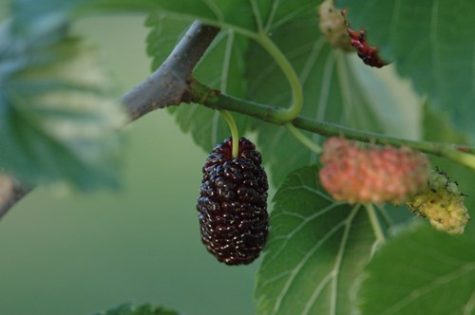
Magickal Uses
- Ruler: Mercury
- Type: Tree
- Folk Name: Blood of a Goose (tree sap)
- Magickal Form: Wood, Berries
- Magickal Properties: Insight, Courage, Focus
Add the berries to success spells for insight and inspiration. A mulberry leaf should be placed near the crib to protect the baby.
Sleep with Mulberry leaves under your pillows to have psychic dreams. Make a tea from the leaves and use the brew to draw protection sigils. Carry the leaves as a talisman for strength and courage. Meditate under the tree to sync your subtle bodies.
Use wood from this tree to craft a wand that will boost your willpower. A Mulberry wand will also bring more focus and clarity to ritual. It helps to center the practitioner, increase magickal awareness, and bring sudden insight, revelation, or Cosmic knowledge.

Mulberry Symbolism
Here are a few key words when it comes to the personality and symbolic meaning of this lovely tree:
- Caring
- Exploring
- Providing
- Nurturing
- Attraction
- Survivalist
- Adventurous
The mulberry is typically a fast growing bush-tree, and it will quickly take over a domain when happy. By association, mulberry tree people will expand, explore, seek, find and spread their wings to great lengths when living in the right environment.
Mulberries are such giving plants. They provide food for humans and animals alike. People connected to the mulberry tree meaning, will have the same tendency to give, provide, protect and nurture others around them.
In this same light, mulberries are natural magnets for all kinds of life. The lovely shade they provide and their delicious berries attract lots of interesting beings…from humans to birds to deer and more.
When connected to the mulberry tree, we can also attract lots of interesting people, nature, experiences, opportunities. Mulberry people will be quite fortunate, and can be like a vortex…calling to themselves who and what they needs.
This is largely due to the mulberry’s ability to remind us all about the understanding of give and take. The mulberry shows us that as we give, energy will be given to us as well. It is the Law of Reciprocation, and he will have an innate understanding about this.
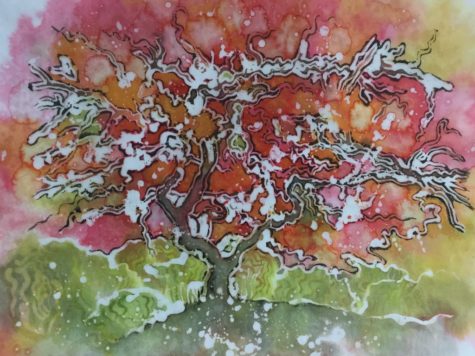
Mulberry Dreaming
There are many conflicting ideas about what mulberries mean in dreams. This is what I found:
- Eating mulberries in a dream mean increase in one’s earnings, praiseworthy religious assiduity, good faith, certitude and leading a healthy life.
- The mulberry tree in a dream represents a wealthy person with many children.
- Mulberry in a dream also could mean borrowing money.
- A mulberry tree in a dream also represents a wealthy and a generous man with a large family.
- Eating black mulberry in a dream also means prosperity.
- Dreaming of eating mulberry means windfall profits.
- Dreaming of mulberry, that disease will prevent you from fulfilling your wish, and friends often visit you, hoping that your help can alleviate their pain and suffering.
- The woman dreamed of eating mulberry, indicating that she could give birth to a child with great achievements in the future.
- Dreaming of eating mulberry foreshadows something that is painful and disappointing.
- A pregnant woman dreaming of eating mulberry, implies that she would have a noble child.
- If you are a married woman, you are about to conceive , or you will give birth to bright, intelligent children in the future, which will make your family prosper.
And then there was this confusing explanation:
This dream has good luck and bad luck. Those who dream of mulberry trees must be young and have no blunders; those who dream of mulberry trees who are thin have less interest and are better. Dreamed that if the mulberry tree withered, the Lord’s good luck. Planting mulberry trees is difficult to protect. Mulberry trees in the rain are difficult to eat. Body tied to mulberry, internal heart injury.
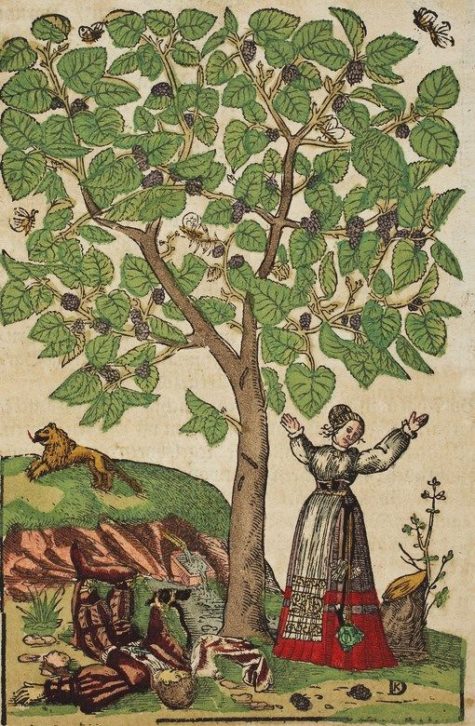
History and Lore
According to a German folklore, the roots of mulberry tree are often used by the devil to polish his boots (and therefore, these trees are associated with evil).
In China, the mulberry is considered the World Tree that connects the Heavens, the Earth and the regions below.
There was a sacred grove of mulberry trees planted outside the eastern gate of the early royal cities, and the tree was associated with this direction because as the “house” of the Mother of the Suns, the Sun rose every day by climbing up the Mulberry tree.
The wood of the tree was used to make bows that “shot” away evil influences that emanated from the compass points.
There is evidence that the Mulberry was revered in Islam too, since the tree can be found close to Muslim sanctuaries.
Mulberry paper is used as vessels for offerings in Shinto shrines. Japanese families often used mulberries as a part of their family crests, and strips of the fiber were hung from sacred trees as prayers. The mulberry leaves were also used to feed silk worms, who produced the fiber to make kimonos fit for the ruling class. In all of these capacities, the mulberry represents support, nurturing and self-sacrifice.
The Romans ate Mulberries at their feasts, as we know from the Satires of Horace, who recommends that Mulberries be gathered before sunset.
We also find mention of the Mulberry in Ovid, who in the Metamorphoses refers to the legend of Pyramus and Thisbe, who were slain beneath its shade, the fruit being fabled to have thereby changed from white to deep red through absorbing their blood.
Pliny speaks of its employment in medicine and also describes its use in Egypt and Cyprus. He further relates:
“Of all the cultivated trees, the Mulberry is the last that buds, which it never does until the cold weather is past, and it is therefore called the wisest of trees. But when it begins to put forth buds, it dispatches the business in one night, and that with so much force, that their breaking forth may be evidently heard.”
It has been suggested that the generic name of the Mulberry, Morus, has been derived from the Latin word mora (delay), from this tardy expansion of the buds.
As the wisest of its fellows, the tree was dedicated by the Ancients to Minerva.
Sir Walter Scott relates in his famous story Ivanhoe that the Saxons made a favorite drink, Morat, from the juice of Mulberries and honey.
There are many famous Mulberry trees in England. Those of Syon House, Brentford, are of special historical interest and include what is reported to be the oldest tree of its kind in England, said to be introduced from Persia in 1548.
It is this particular and venerable tree which forms the subject of an illustration in London’s Aboretum and Fruticetum. Although a wreck compared to its former self, it is regarded as one of the largest Mulberry trees in the country. Its height is given by Loudon as 22 feet, and additional interest is attached to this tree, as it is said to have been planted by the botanist Turner.
In 1608 James I, being anxious to further the silk industry by introducing the culture of the silkworm into Britain, issued an edict encouraging the cultivation of Mulberry trees, but the attempt to rear silkworms in England proved unsuccessful, apparently because the Black Mulberry was cultivated in error, whereas the White Mulberry is the species on which the silkworm flourishes.
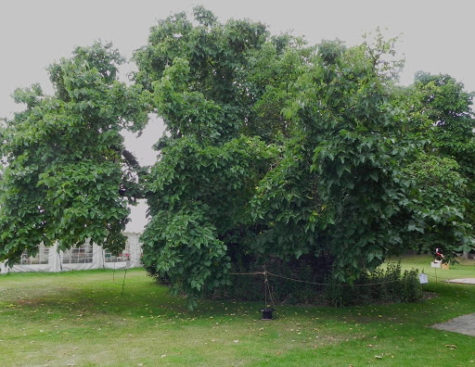
Shakespeare’s Famous Mulberry
Shakespeare is said to have taken a Mulberry tree from the Mulberry garden of James I, and planted it in his garden at New Place, Stratford-on-Avon, in 1609. This also was a Black Mulberry, “cultivated for its fruit, which is very wholesome and palatable; and not for its leaves, which are but little esteemed for silkworms.”
“The Tree,” Malone writes, “was celebrated in many a poem, one especially by Dibdin. But in about 1752, the then owner of New Place, the Rev, Mr. Gastrell, bought and pulled down the house and cut down Shakes’eare’s celebrated Mulberry tree, to save himself the trouble of showing it to those whose admiration of the poet led them to visit the ground on which it stood.”
The pieces were made into many snuff boxes and other mementoes of the tree, some of them being inscribed with the punning motto, “Memento Mori.”
Ten years afterwards, when the freedom of the city was presented to Garrick, the document was enclosed in a casket made from the wood of this tree. A cup was also made from it, and at the Shakespeare Jubilee, Garrick, holding the cup, recited verses, composed by himself in honor of the Mulberry tree planted by Shakespeare:
“Behold this fair goblet: ’twas carved from the tree
Which, oh, my sweet Shakespeare, was planted by thee!
As a relic I kiss it, and bow at thy shrine,
What comes from thy hand must be ever divine.”
“All shall yield to the Mulberry tree;
Bend to the blest Mulberry:
Matchless was he who planted thee,
And thou, like him, immortal shall be.”
A slip of it was grown by Garrick in his garden at Hampton Court, and a scion of the original tree is now growing in Shakespeare’s garden.
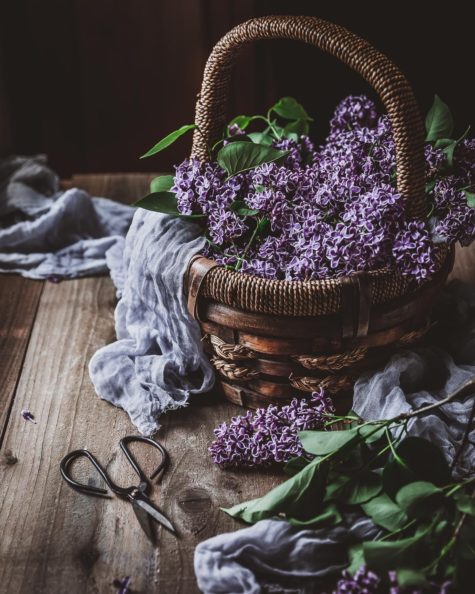
Magickal Uses
- Part used: Fresh flowers
- Planet: Venus
- Element: Earth
- Magickal Influences: Love and Purification
This is the flirt flower. It attracts love quickly although the love it brings often doesn’t last for long. Wear the fragrance or bathe in fresh lilacs when you want a fling. This flower is for fun. It is a great scent to spray in a room before parties or before meeting a date who is taking the relationship too seriously. Lilac keeps things light.
Inhale the aroma rising from the light purple flowers for internal purification. To cleanse a home, place jars of the fresh flowers in several rooms. Bathe in Lilac dew on May Day for a year of beauty.
The scent of fresh lilac flowers was once thought to drive away ghosts.
The scent of lilacs enhances a child’s educational aptitude. Here are a number of ways to use it:
- Place a drop of lilac fragrance oil on a light bulb near where a child studies.
- Place a vase of fresh lilac blossoms on the child’s desk so that the fragrance wafts over the child while studying.
- Place a table and chair outside next to a lilac bush in bloom and send the child outside to study.
Like many flowers, lilacs can be utilized in love expansion rituals. The sweet fragrance of these seasonal blooms brims with loving energies.
In aromatherapy the fragrance of Lilacs is recommended to patients who suffer from chronic depression and anxiety. Lilac blossoms can be added to your bath for a soothing aromatherapy remedy for stress and anxiety.
No true lilac essential oil is currently available, however lilac scents are available. They are said to bring peace and harmony. Also believed to induce “Far Memory” or the ability to remember past lives. It is also useful for inducing clairvoyant powers in general.
Lilac oil reputedly repels vampires and is certainly more fragrant than garlic. Most of the Lilac oil that is commercially available is synthetic; presumably vampires can tell the difference. If you make your own, the lingering aroma should keep the vampire out of the house as well.
A recipe for how to make your own lilac oil can be found here: Oil of Lilac
Jennifer Shepherd at the Lipstick Mystic recommends using the seasonal qualities of lilacs as a way of jump-starting your life. She says,
“Since lilac tends to be one of the earlier flowering plants each spring-time, it carries with it some of the same spiritual energies of other “early bloomers” like daffodils and forsythia. Lilac has the same quality of being able to push or penetrate through harsh, heavy “winter” energies.
So if you’re seeking some kind of significant breakthrough in your life, and you want a little extra kick or punch to help get you through, connecting with the energies of lilac can be very helpful. Smelling the fresh flowers on the bush or bringing a few blooms inside to enjoy is the best way to connect with this special plant.”
Lilac blossoms are natural astringents–they dry things out. Place a cup or two of slightly wilted flowers in a jar, and fill with witch hazel. Allow it to steep for a few days, and then strain out the flowers. Use the lilac and witch hazel blend as a facial toner, to keep your skin looking healthy and fresh all summer. Dab a bit on your wrists when you’re getting ready to go out, to attract new love your way.
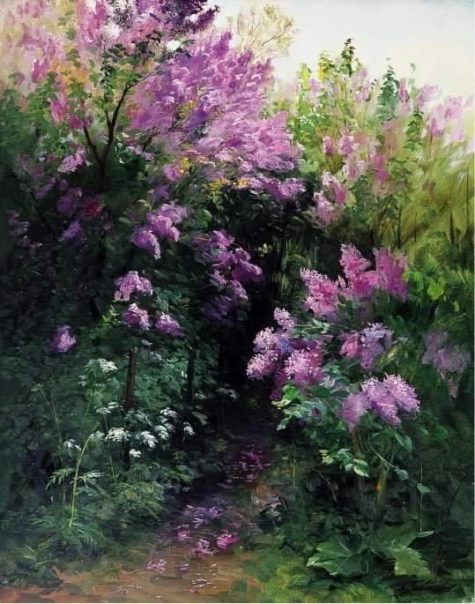
The Lore of Lilacs
The trees were respected by Orthodox Christians and the plant’s Greek name “pashalia” is derived from “pasha” which in Jewish means “passage” as they were considered to drive ghosts away instantly. The lilac tree is also linked with reincarnation.
One of the plant’s secrets is that the flowers do not fade under hot water. Lilacs are said to remove ghosts, aid the exploration of past lives, and bless the passages of life, both birth and death. Purple lilacs are the symbol for the first emotions of love. If the blossoms are strewn about it is said they can ward off evil.
Lilacs have a history of promoting clairvoyance, divination, peace, harmony and creativity. Lilac tonics were probably first introduced in Henry 8th time. They are called a harbinger of spring. White lilacs are a symbol of innocence.
In some parts of England, it is considered unlucky to bring Lilac, especially white Lilac, into the house. The purple and red varieties are usually less feared, but even they are sometimes excluded from house decorations as bringers of misfortune.
In the 1960’s, a florist in Oxford England strongly advised a customer not to buy white Lilac for a friend in the hospital on the grounds that many people thought it foretold death if brought indoors. He did not know why this should be so, only that it was quite commonly believed. In fact it is almost certainly due to the widespread association of death and misfortune with “drowsy-scented” flowers, and also with those which are white.
An interesting detail about the Lilac tradition is that it is found only in some English districts, especially in the midland counties, and quite unknown elsewhere.
It is lucky to find a five-petaled lilac blossom of any color. Along the Welsh border, Lilac trees are said to mourn if any of their kind are cut down, and to be flowerless in the following year.
From the Cincinnati Enquirer 1 August 1900, we have this fun little tidbit:
“She who wears the lilac will never wear the wedding ring,” runs the old proverb, and although the scent of the flower is sweet and its tints are fresh and universally becoming it is contraband among the village maidens in England.
A single boutonniere of lilac has been held responsible for solitary spinsterhood. For the same reason mothers with marriageable daughters never allow a jug of the sweet smelling blossoms inside the house. It may stand on the outside window sill, but “there’s no love luck about the house” when there are lilacs in it.
To give one’s sweetheart a spring of the flower is the death blow to the most secure of engagements. White lilacs are even more fatal to love affairs than the colored ones; they are, in fact, as ominous as an opal ring. Love, however, laughs at artificial flowers, and only the real tree grown one can come between the lover and his lass.
Stony-hearted bachelors sometimes sport a lilac boutonniere as a charm against feminine blandishments. Londoners do not share the superstition, and use the flower freely for decoration, regardless of the unlucky attributes.
Queen Adelaide, consort of King William IV, was apparently unafraid of lilacs, although, to be fair, she was already married when she commissioned her famous Honiton lace dress whose flower patterns, included lilacs, spelled out her name.
The meaning of the lilac flower has diversified throughout the ages. Lilacs originated in Southeastern Europe and are a popular part of the Mediterranean culture. They are frequently associated with the Easter holiday, which occurs during the peak of its bloom time.
Lilac meanings vary throughout different cultures and time periods.
- The Celtics regarded the lilac as “magical” due to their incredibly intoxicating fragrance.
- During the Victorian Age, the giving of a lilac was meant to be a reminder of an old love. In fact, widows were often seen wearing lilacs during this period.
- In Russia, holding a sprig of lilac over the newborn would bring wisdom.
- In the United States, the lilac is the official state flower of New Hampshire and represents the ‘hardy’ nature of its people.
Because lilacs have one of the earliest bloom times, they symbolize spring and renewal. Lilacs also symbolize confidence, which makes them a traditionally popular gift for graduates. There are many meanings that lilacs have that can best be classified by color.
- White lilacs symbolize purity and innocence.
- Violet lilacs symbolize spirituality.
- Blue lilacs symbolize happiness and tranquility.
- Magenta lilacs symbolize love and passion.
Lilac, the color for which this flower is named, is a light purple that symbolizes a first love.
Although various colors of lilacs have different meanings, the lilac has always had a strong association with love and romance throughout history.
Dreaming About Lilacs
Lilac in a dream is a sign of future changes in personal life, the anticipation of big feelings and an exciting love affair.
- White lilac personifies purity, sincerity, sensuality, the birth of affection.
- Violet lilac is a longing for love experiences, yearning of the heart; awakening of romance.
To dream of a blooming lilac is a sign of positive emotions, receiving pleasant news or surprise.
Standing under lilac bush in a dream promises a person a frivolous sexual adventure, which will very quickly exhaust itself, and feelings will evaporate before they turn into something serious.
Miller’s dreambook positioned dreams about lilac mainly as a good sign, foreshadowing love experiences, romance, a surge of sensuality. Flowering lilac shrub reflects the kind and open attitude of people around them to the dreamer, trust and sympathy. Tearing lilac shows a greater likelihood to achieve the desired.
A bouquet of lilac is a sign showing opportunity to find something new about your beloved person, to have sincere conversation. The image promises a romantic acquaintance for single people, but this union will not be long-lasting.
For people who have been married for a long time, a bunch of lilac flowers speaks about the revival of long-forgotten romantic feelings between spouses – sexual desire will be restored and a seemingly past, withering passion will appear.
Some dreambooks interpret ambiguously dreams of a lilac branch. To see a torn off branch in a dream is a symbol of illusion, deceptive hopes that will never be realized. One should beware of strangers who sincerely offer friendship at first glance. To see the blossoming branch of a lilac bush from a window in a dream promises pleasant pastime and an unexpected gift.
To see lilac in a dream and feel its scent means an extraordinary, almost mystical attraction to a person of the opposite sex. Dream interpretation advises not to succumb to this feeling (which will be very difficult to do), because the fruits of such intrigues will remind of themselves more than once, and can easily ruin the life of even the most self-confident person.
If the dreamer happened to pick the fragrant lilac in a dream, it means he will attract close attention of a person whom he likes for a long time.
To dream of a lilac flowers represents feelings about how beautiful it is to notice never fearing a sense of accomplishment in something that isn’t dependent on anything else. A sense of accomplishment in something that nobody else wants to do that always cares about your feelings. Feeling good noticing yourself successful from being self taught. Feeling good about your children having grown up to be independent never needing you for anything.
Sources:
- Encyclopedia of Herbology
- Mrs Daffodil Digresses
- Magical Aromatherapy
- The Encyclopedia of Superstitions
- Encyclopedia of Magickal Ingredients
- Magical Herbalism
- Element Encyclopedia of 5000 Spells
- FTD by Design
- Check My Dream
Magickal Uses
- Planet: Sun, Venus
- Ruler: Pan, Astarte
- Element: Water, Fire
- Astrological Sign: Taurus
- Parts Used: Dried Root
- Basic Powers: Love, Purification
Lovage is one of the most dependable herbs for drawing romance into one’s life. Not only will it bring you love, but regular bathing with this herb will enhance your beauty, physically, and will also allow the inner radiance to shine forth more brightly.
For this reason, Lovage is often used as a bathing herb, cast into the bath, the pleasant scent filling the room and delicately scenting the bather. In this manner, particularly when combined with a candle and poems of a romantic nature, is one able to attract romance.
Add seven rose buds to a Lovage bath, and you will become more attractive to the opposite sex.
With a subtle floral scent, the root is an effective addition to Herbal Amulets to attract love, and it can be steeped in wine to be served to a prospective lover.
You can also add the root, or a strong tea made by boiling the root, to a bath to become psychically cleansed.
In Central Europe, women wore Lovage around their necks when meeting lovers, and the herb was often put in love potions as a guarantee of everlasting devotion.
To encourage someone to love you more, the following can be done:
For nine successive days, rise early, boil Lovage root in water to make a tea, hand-bathe your genitals and face in this before dawn, carry the wash basin to a crossroads, call the name of the one you love, and throw your used bath water toward the sunrise.
One of the most nonjudgmental of herbs, Lovage draws the person most suited to your soul. A great root for bisexuals or anyone confused about which gender he or she is (or should be) attracted to. It is best used when invoking a new relationship and promises to quickly attract your heart’s desire.
Plant Lovage in front of and around your home to help ward off all sorts of unwanted intruders, ranging from door-to-door salespeople, to evil spirits, to epidemics, to vermin.
The leaves can be placed in the shoes to relieve weary feet.
Lovage dug up at night on Good Friday reputedly helps ward off either witches or the influence of the Devil.
Folk Names
- Bo’ Hog Root
- Gout Weed
- Italian Parsley
- Lavose
- Love Root
- Lubestico
- Sea Parsley
- Smellage
History and Folklore
The history of Lovage goes back to the ancient Greeks who chewed the leaves for digestion and gas. Both the Greeks and the Romans used the herb as a medicine, and in the Middle Ages it was used as a cure-all for most illnesses.
- The seeds were nearly as expensive as black pepper at one time.
- Hildegard of Bingen used Lovage in her cooking.
- John Gerard believed Lovage was one of the best remedies of his time (mid 1500s).
Lovage has an ancient history. It was introduced into Britain by the Romans and brought here by early English colonists and was often found in their gardens. Lovage was one of the seeds found in the early American Shakers’ seed sales.
As both a medicinal and culinary herb, Lovage now grows in the authentic garden at Plimoth Plantation, the re‐creation of a Pilgrim village in Plymouth, Mass.
New Englanders would candy the root and chew on the seed during long church services to keep them alert.
Colonial women “cured” many ailments with Lovage: sore eyes, upset stomach. They used fresh leaves for summer “sallets” and flavored winter soups, with the dried root. The dried leaves seasoned the stuffing for roast goose or turkey.
Sources:
- Encyclopedia of Herbology
- The Master Book of Herbalism
- The Herb Book by John Lust
- The Complete Book of Herbs and Spices
- Hoodoo Herb and Root Magic
- Magical Herbalism
- The Herbal Academy
- The Herbal Alchemists Handbook
- Element Encyclopedia of 5000 Spells


